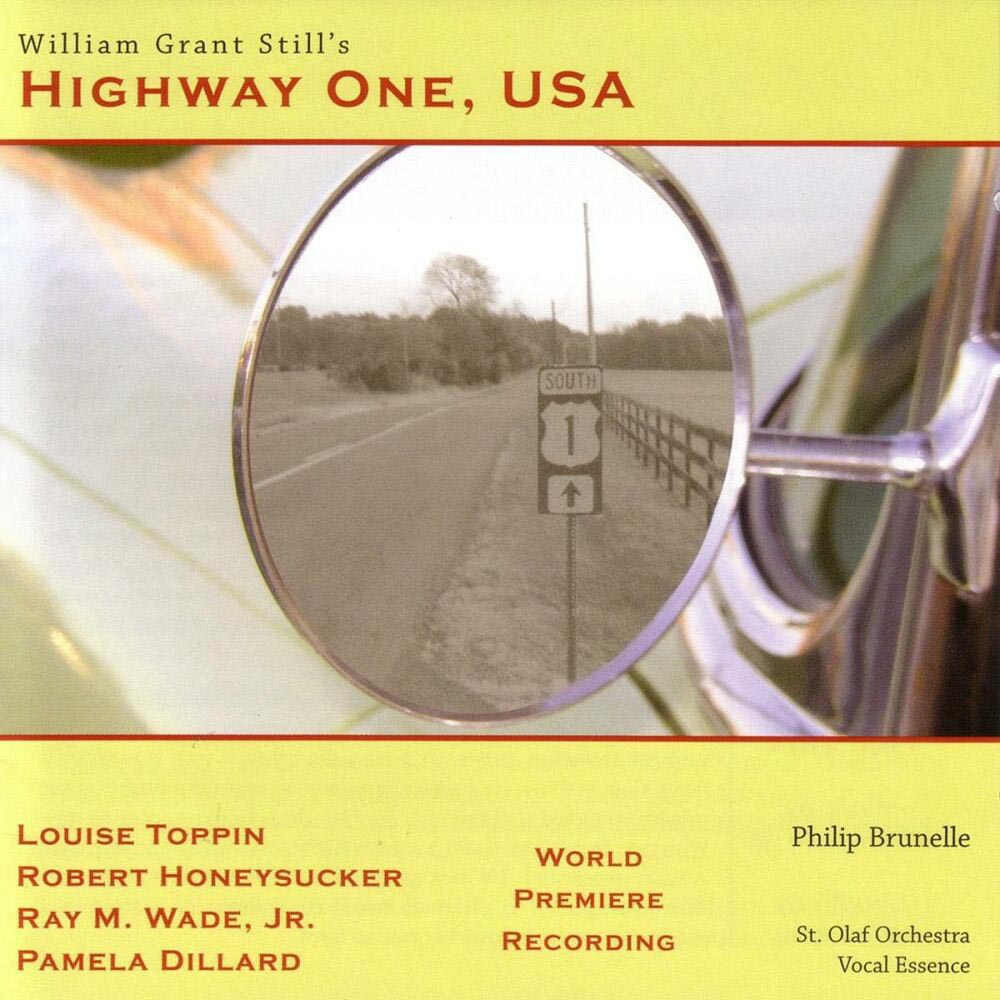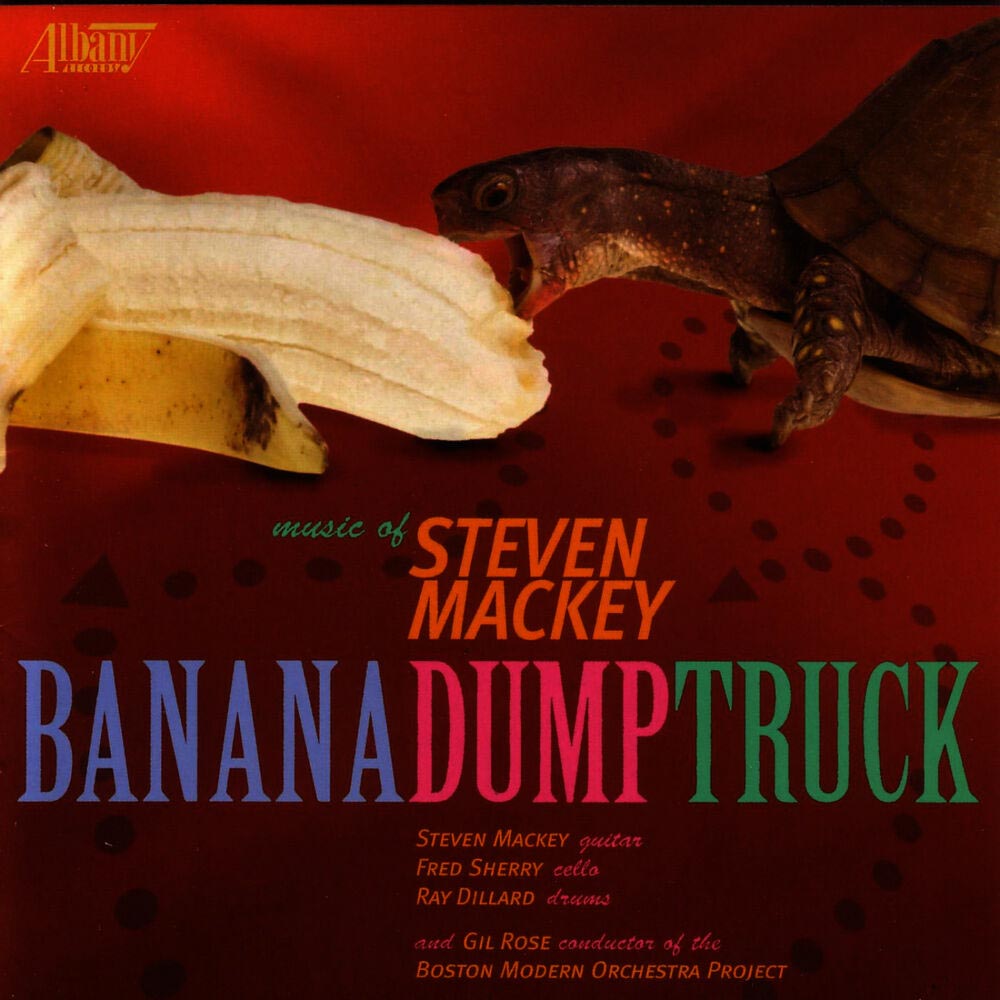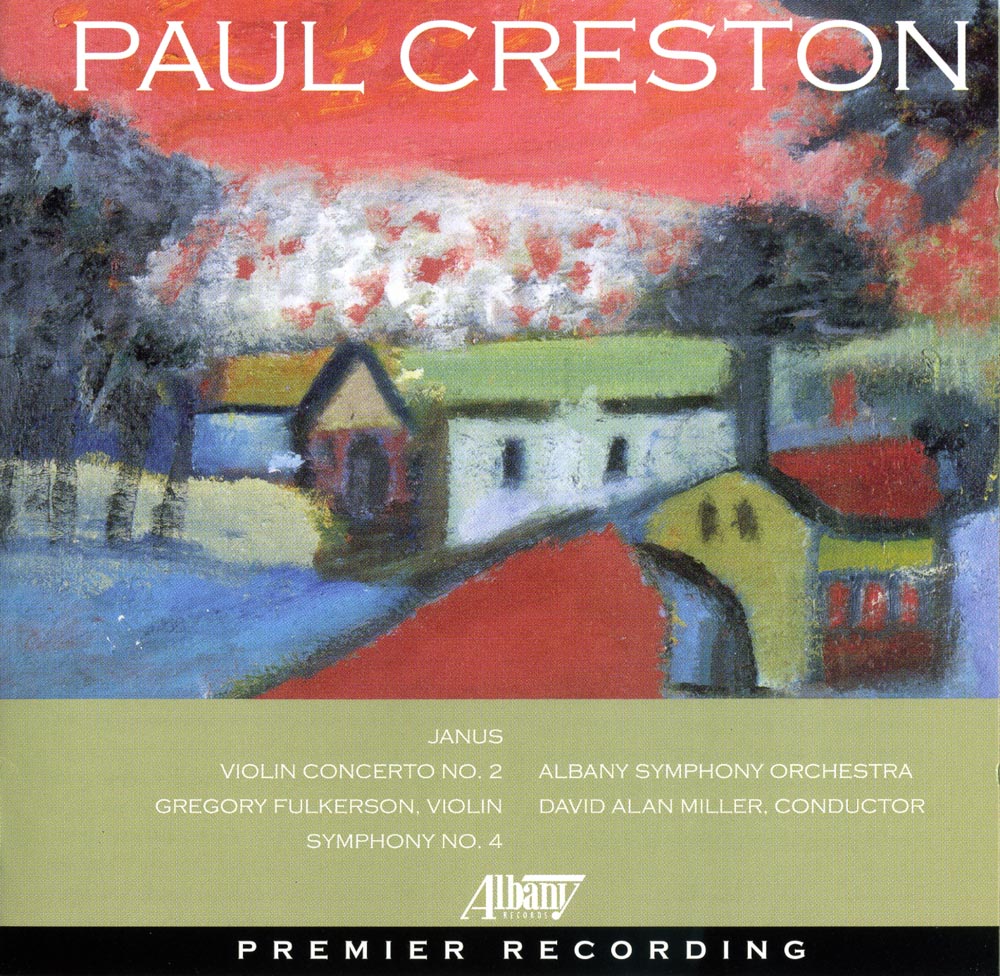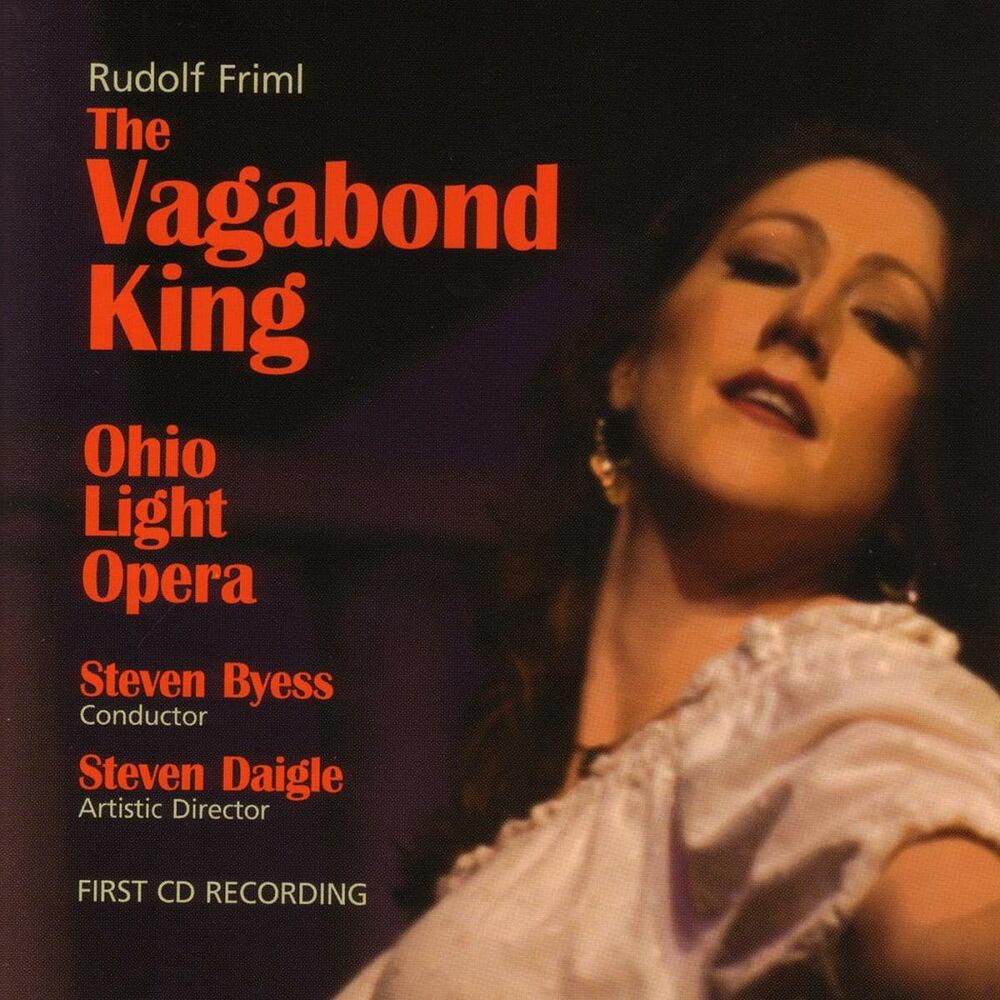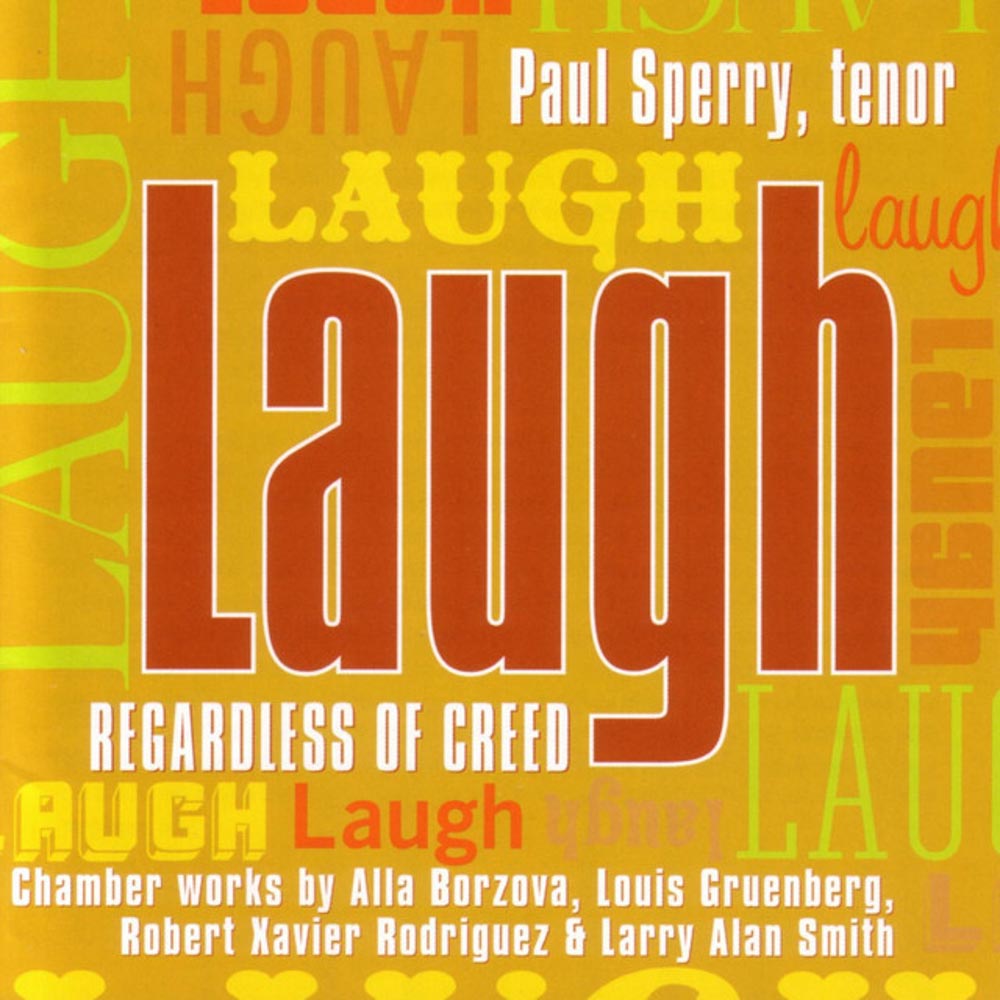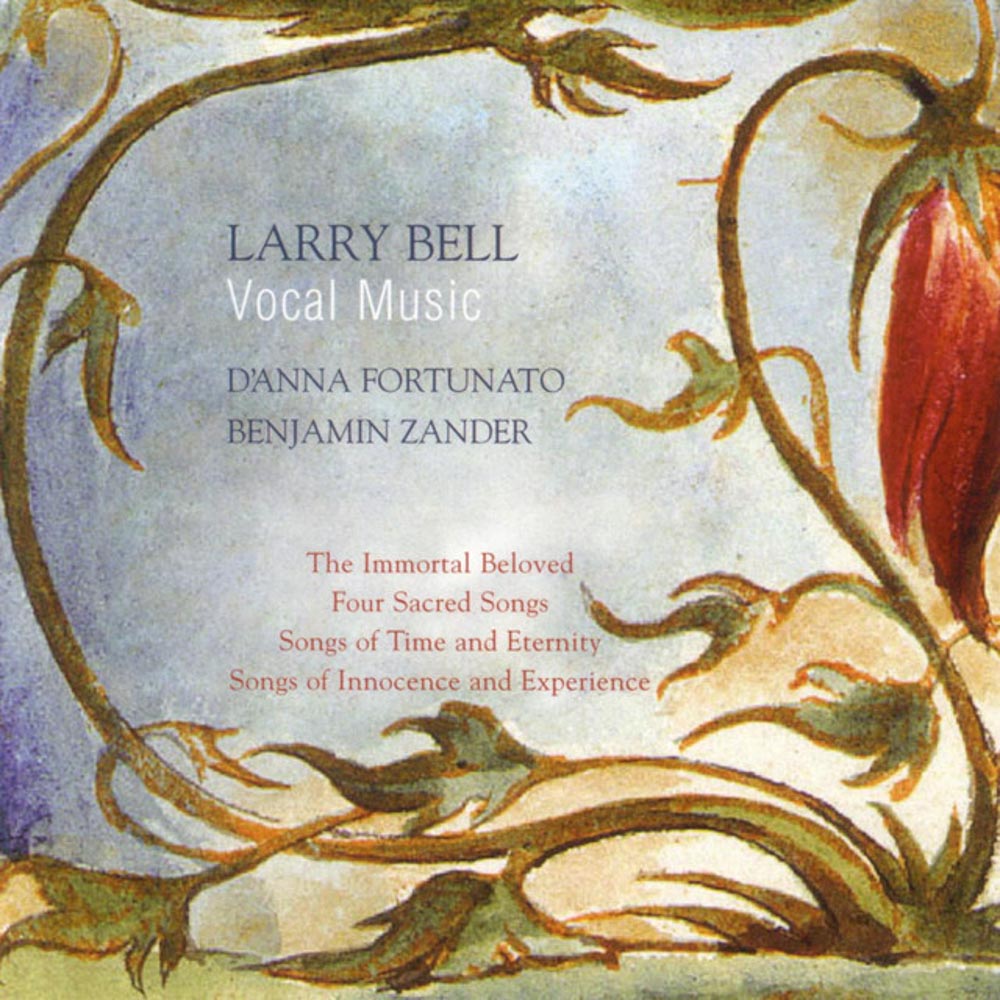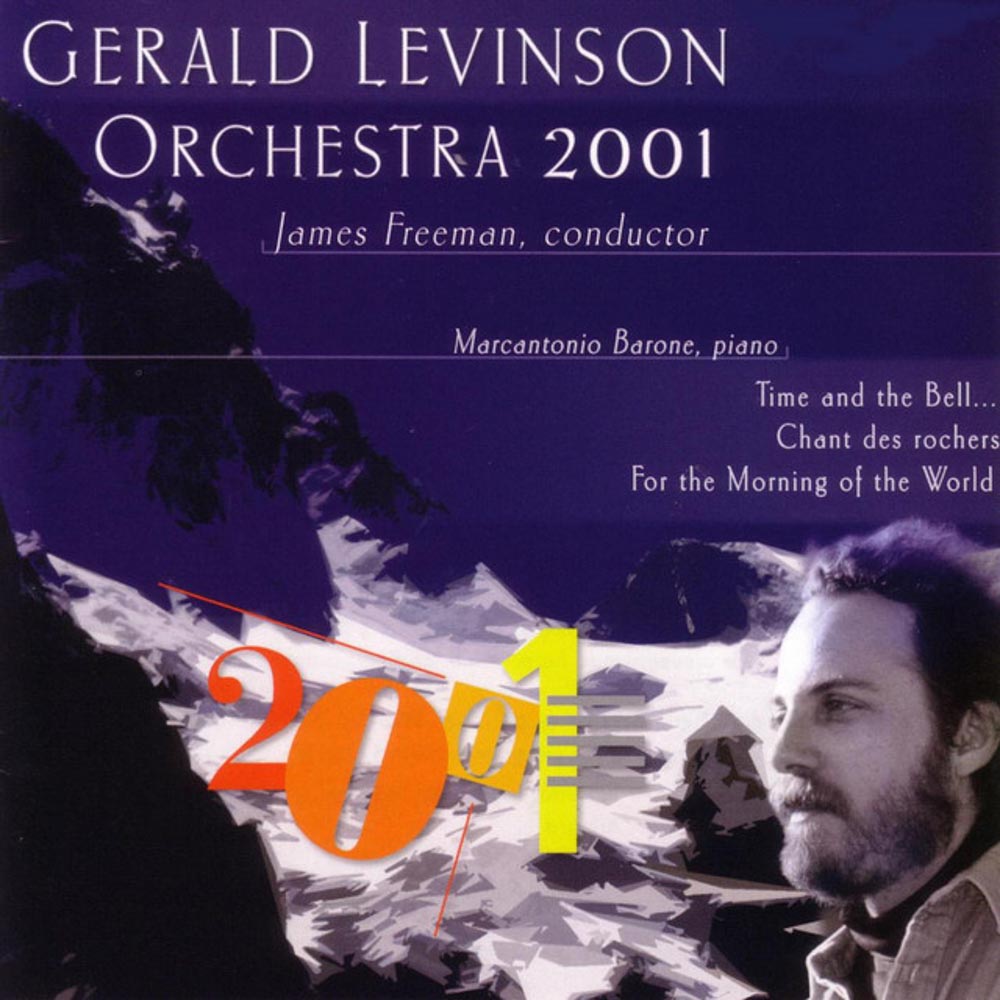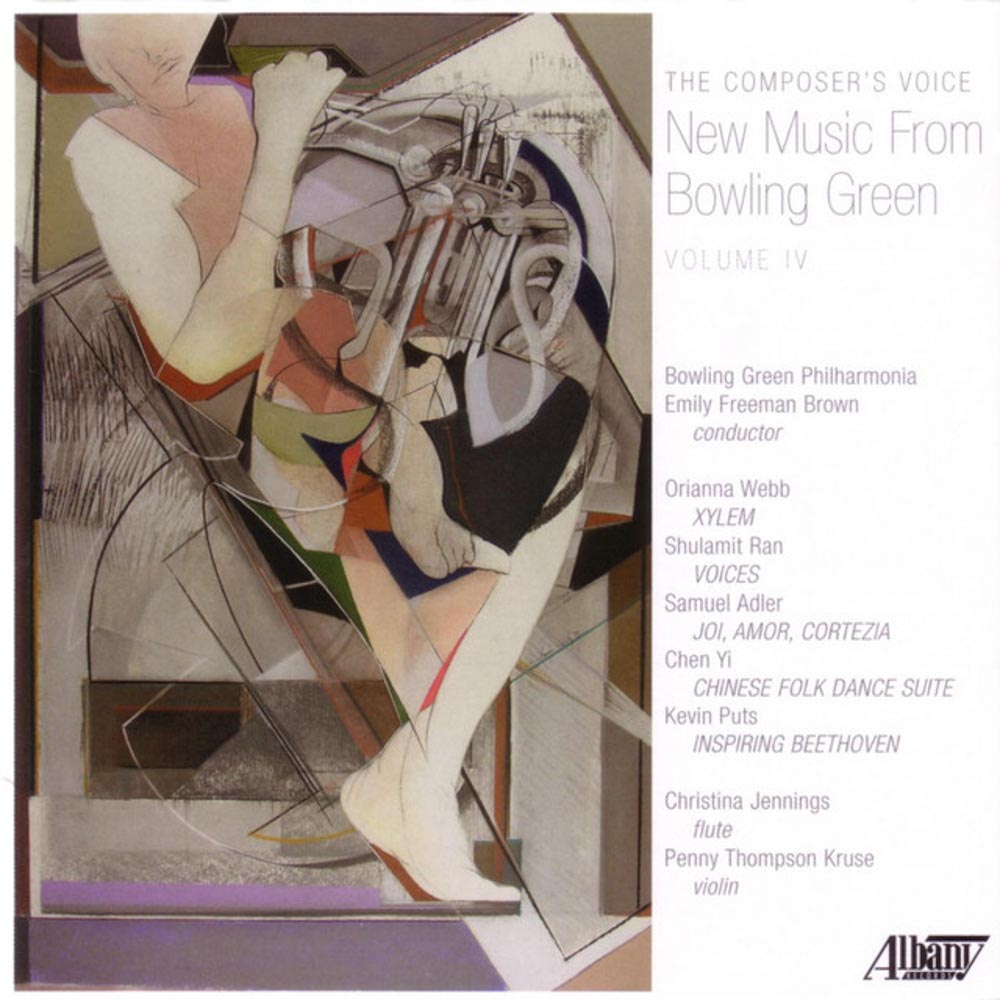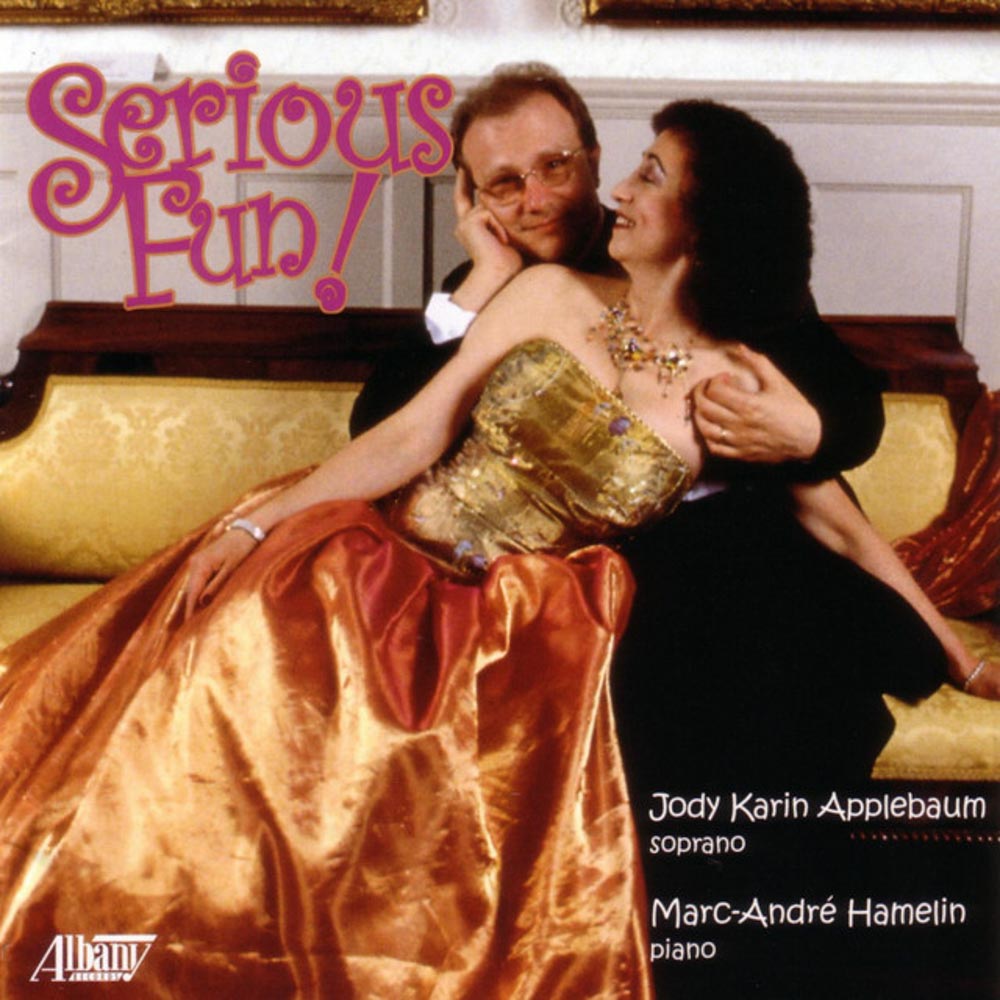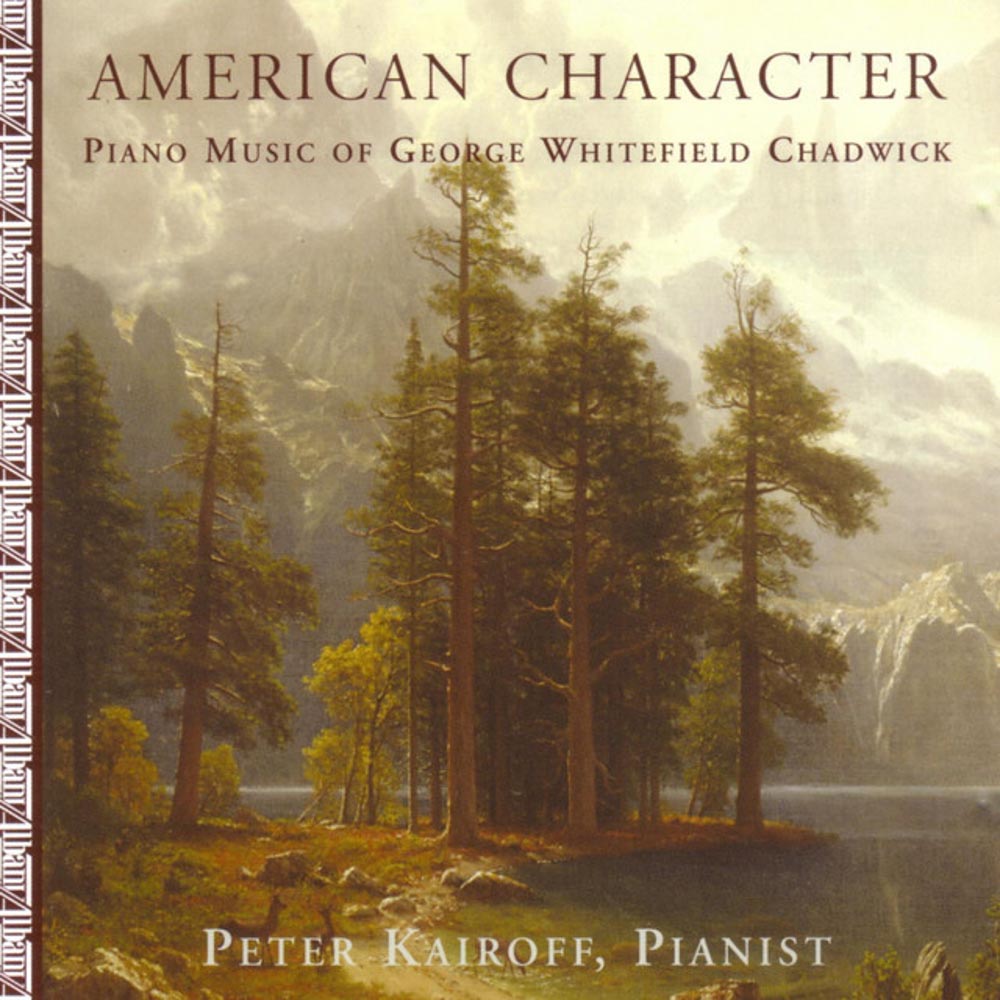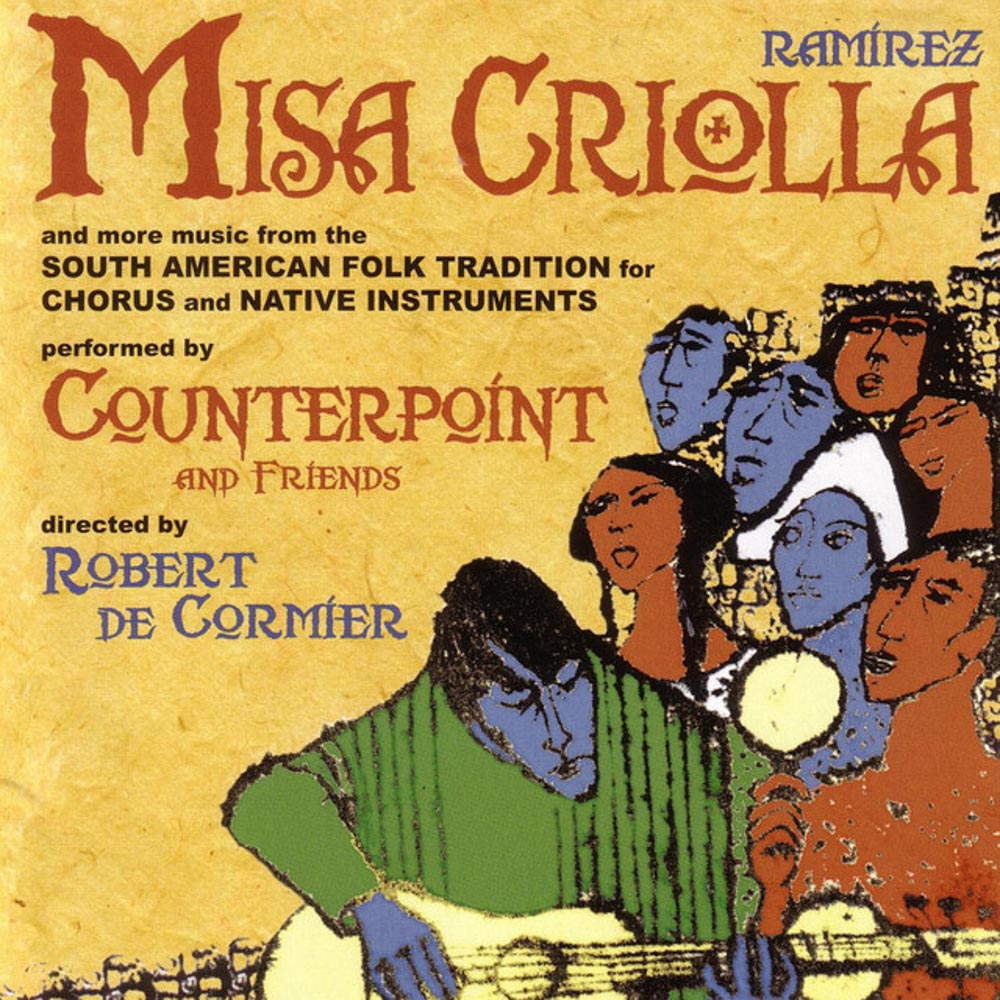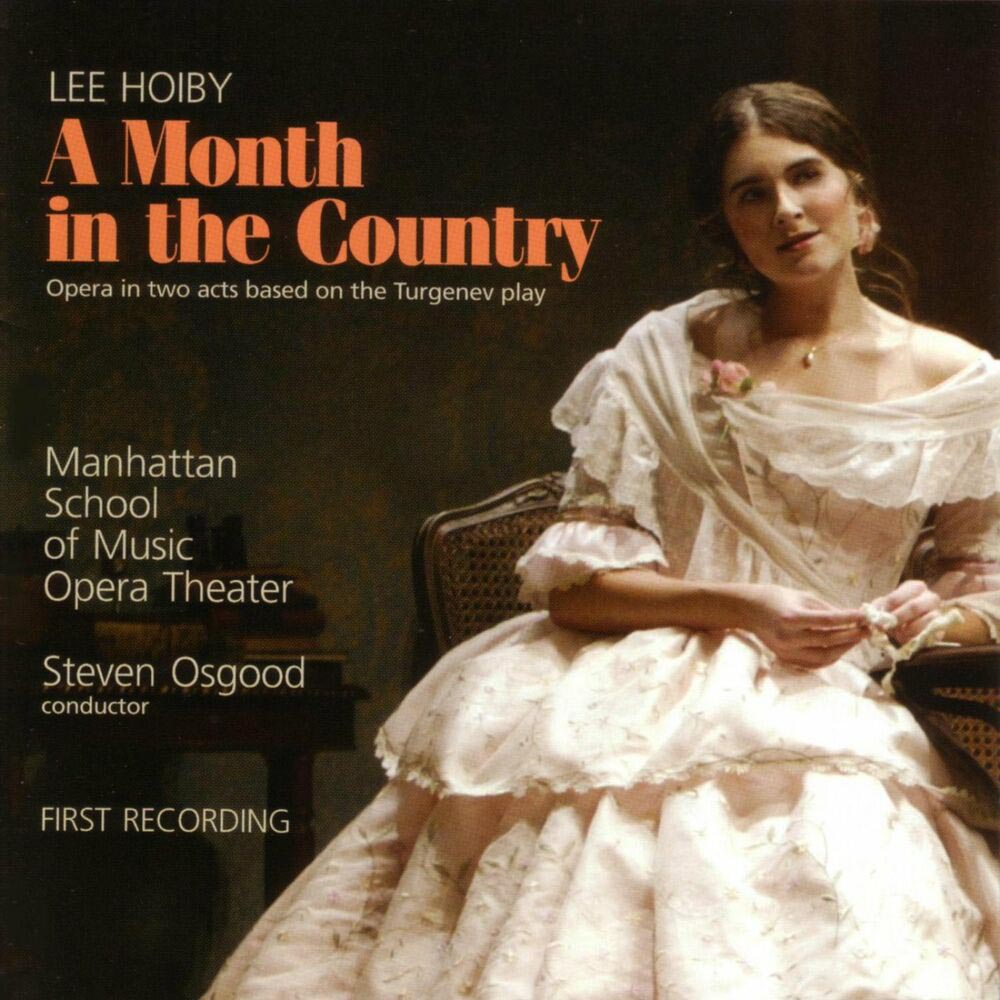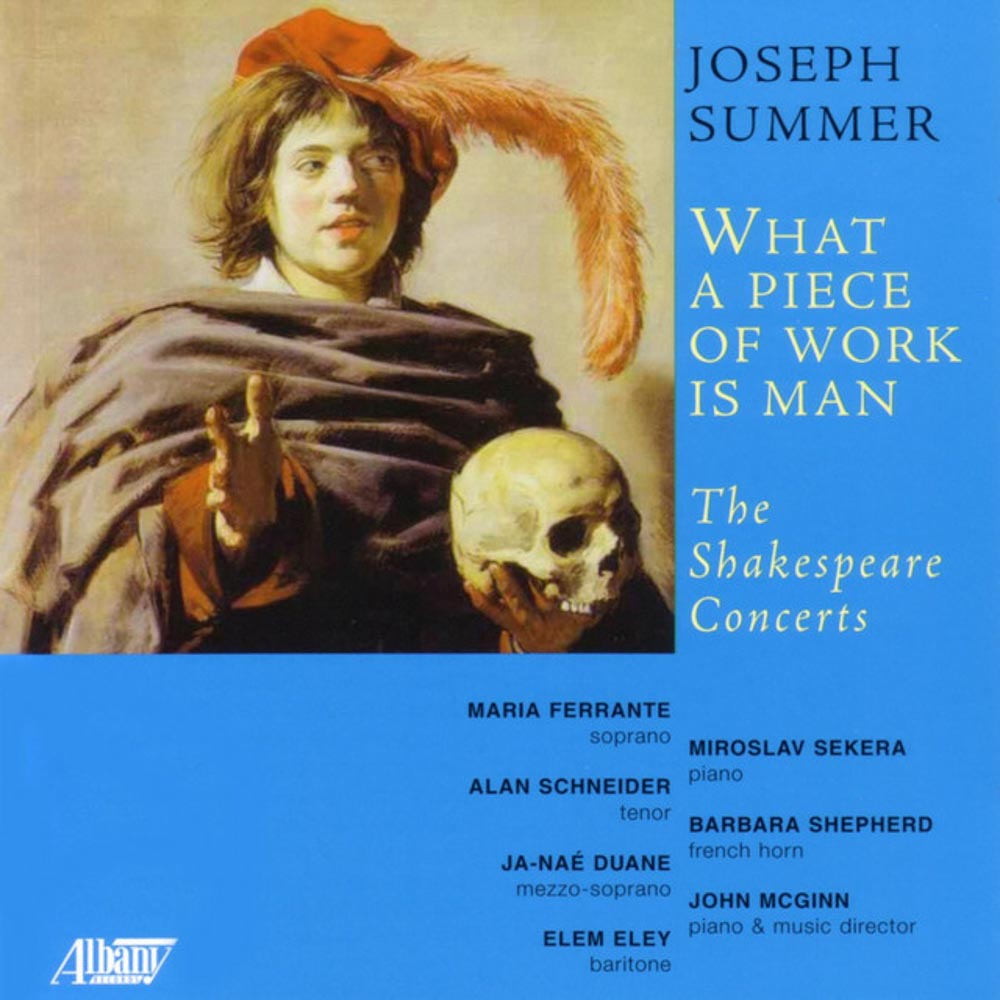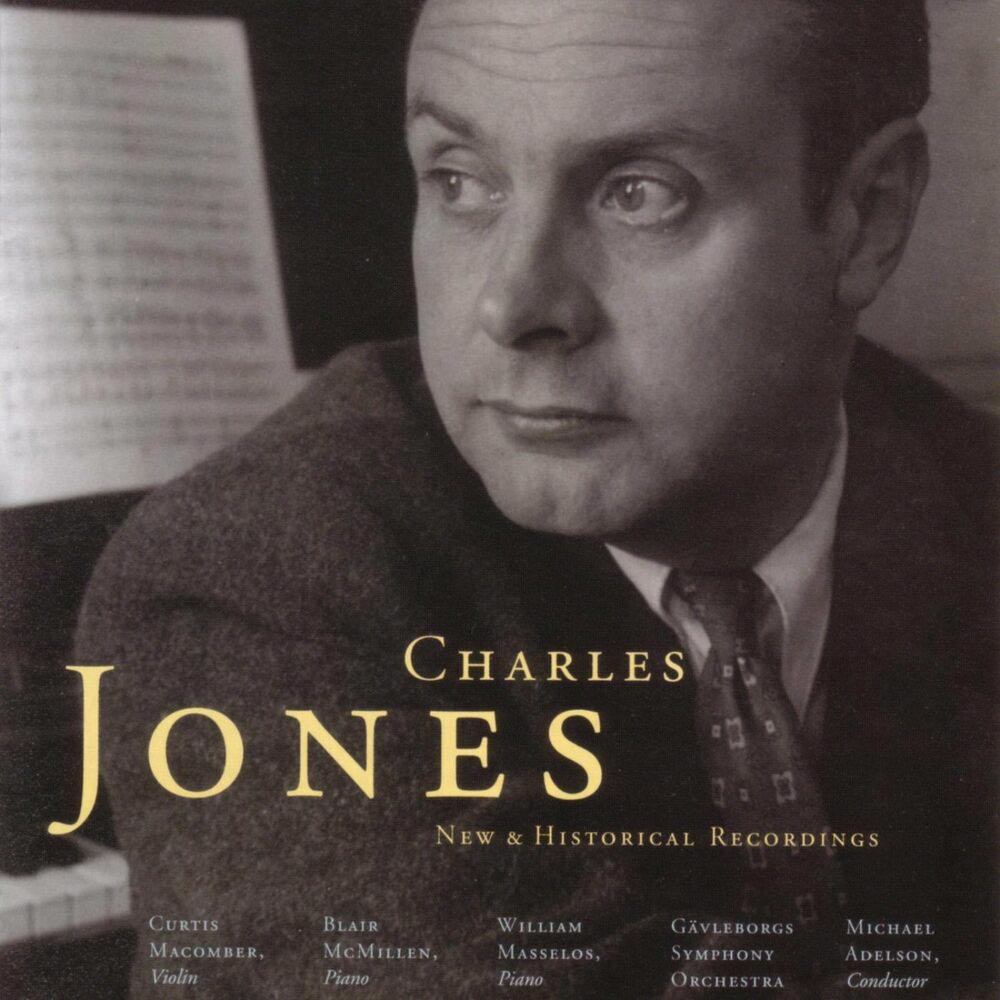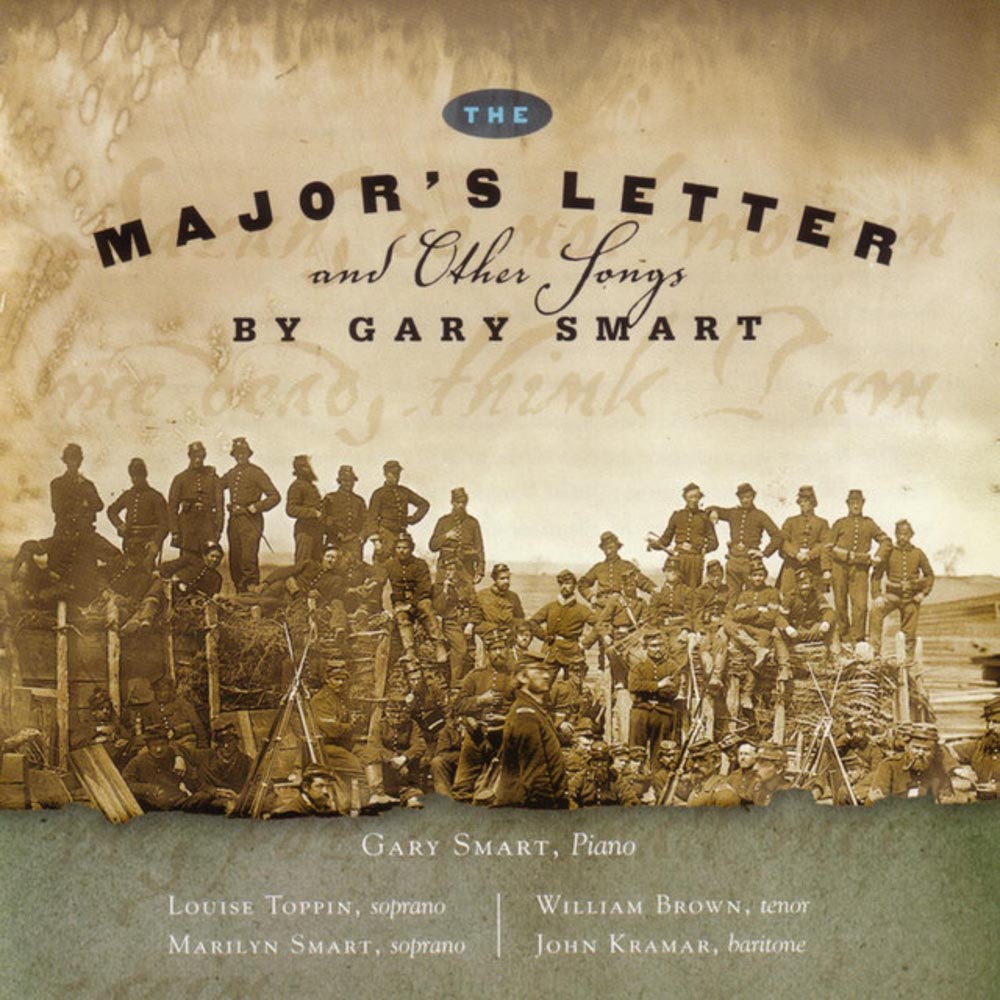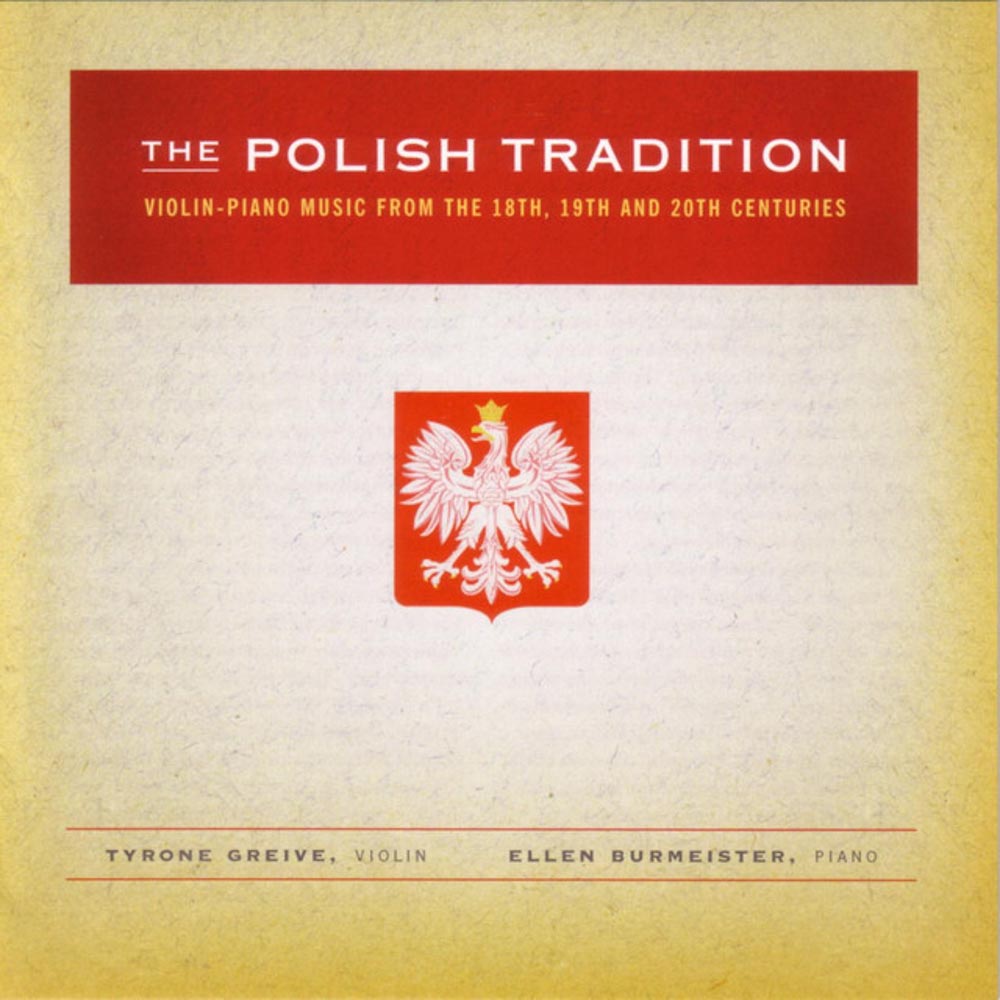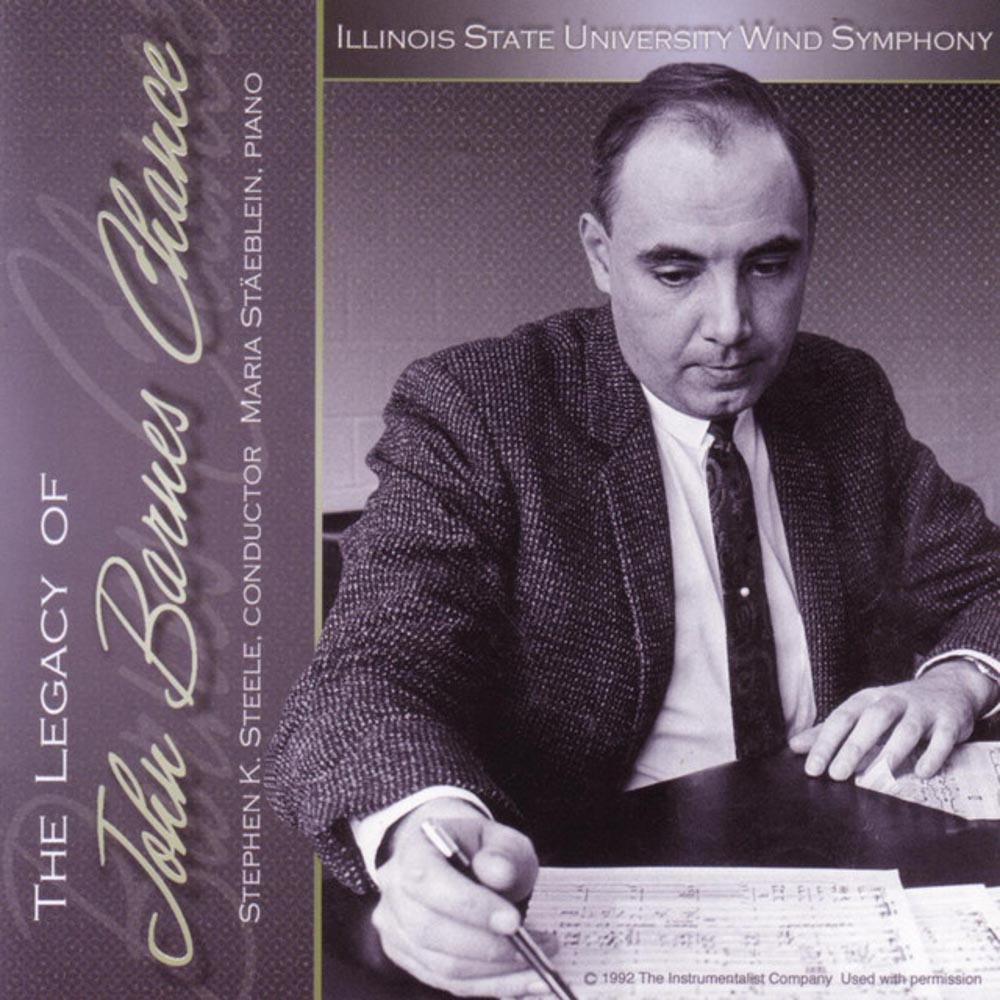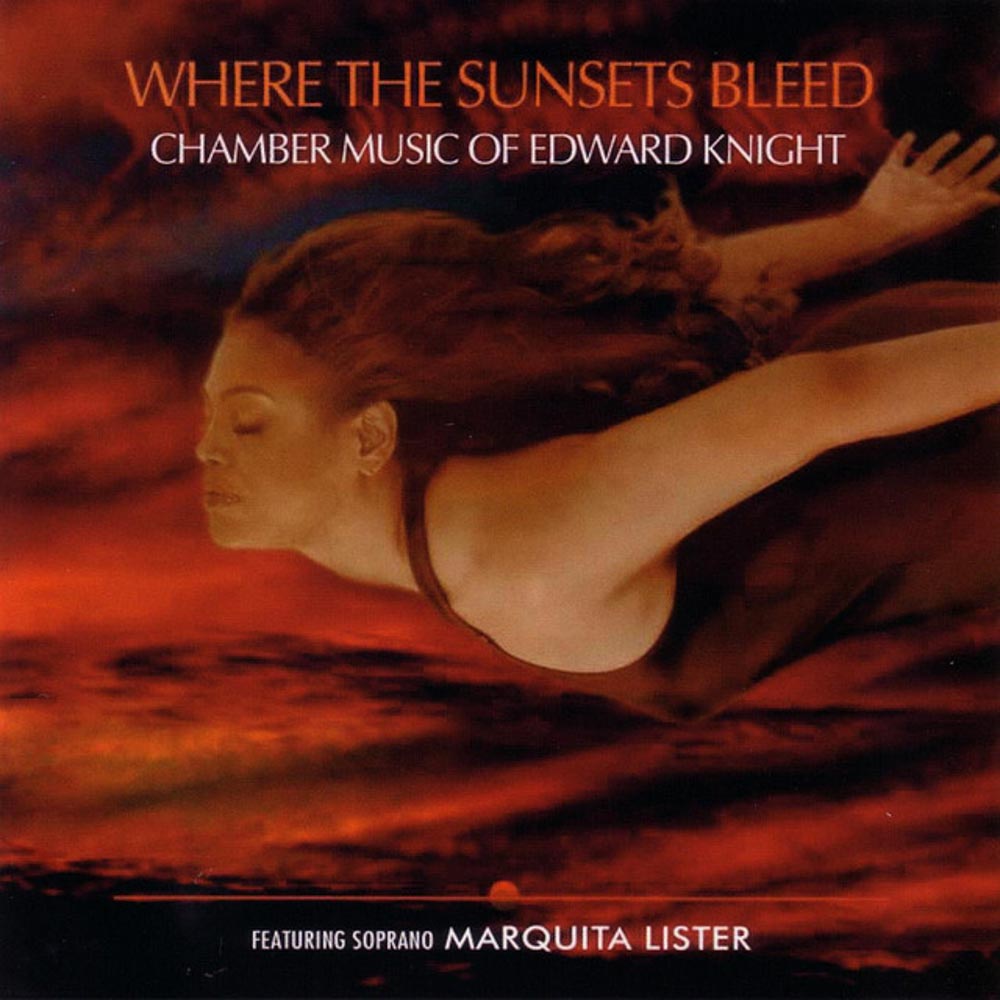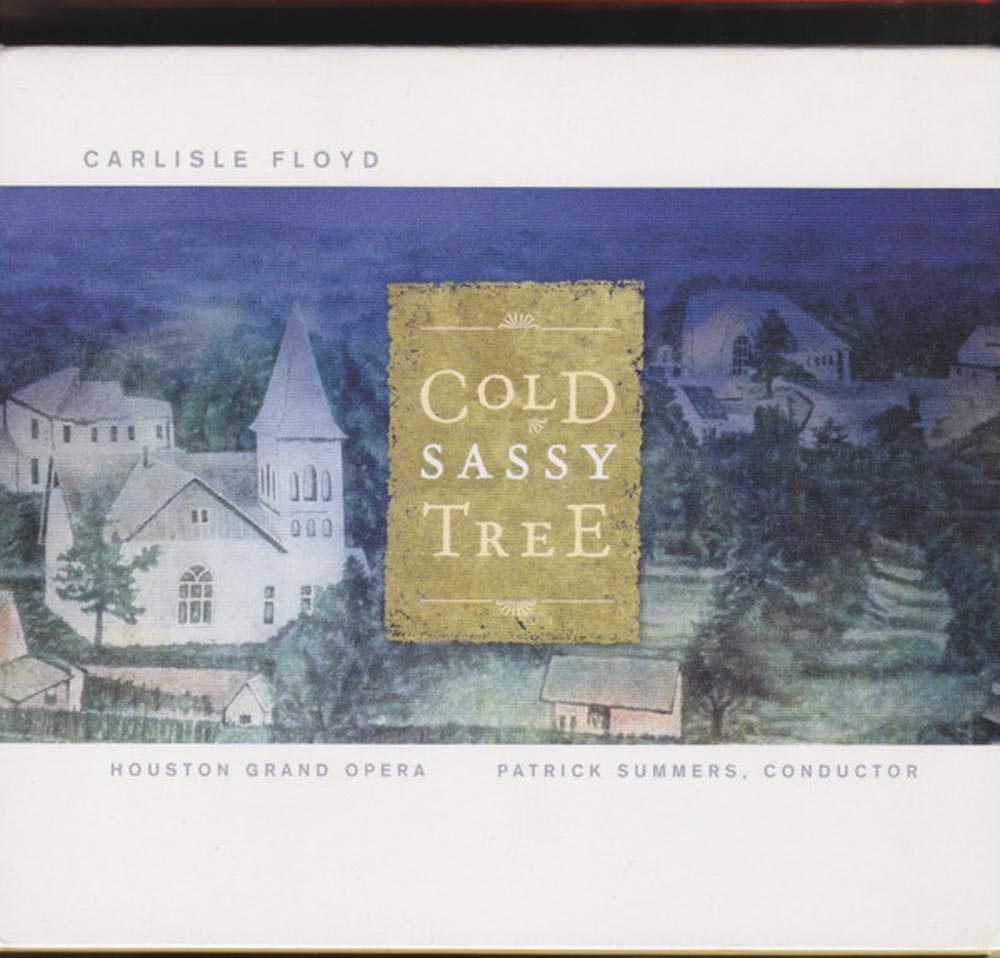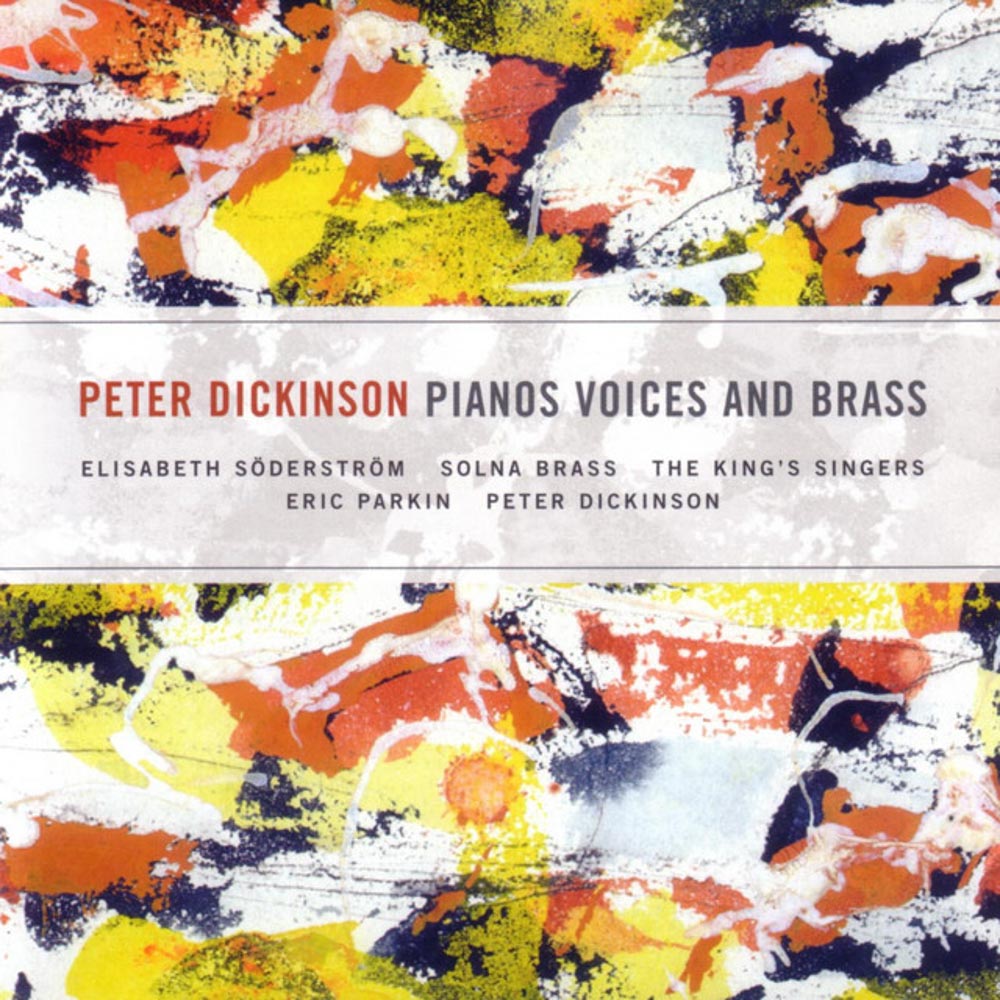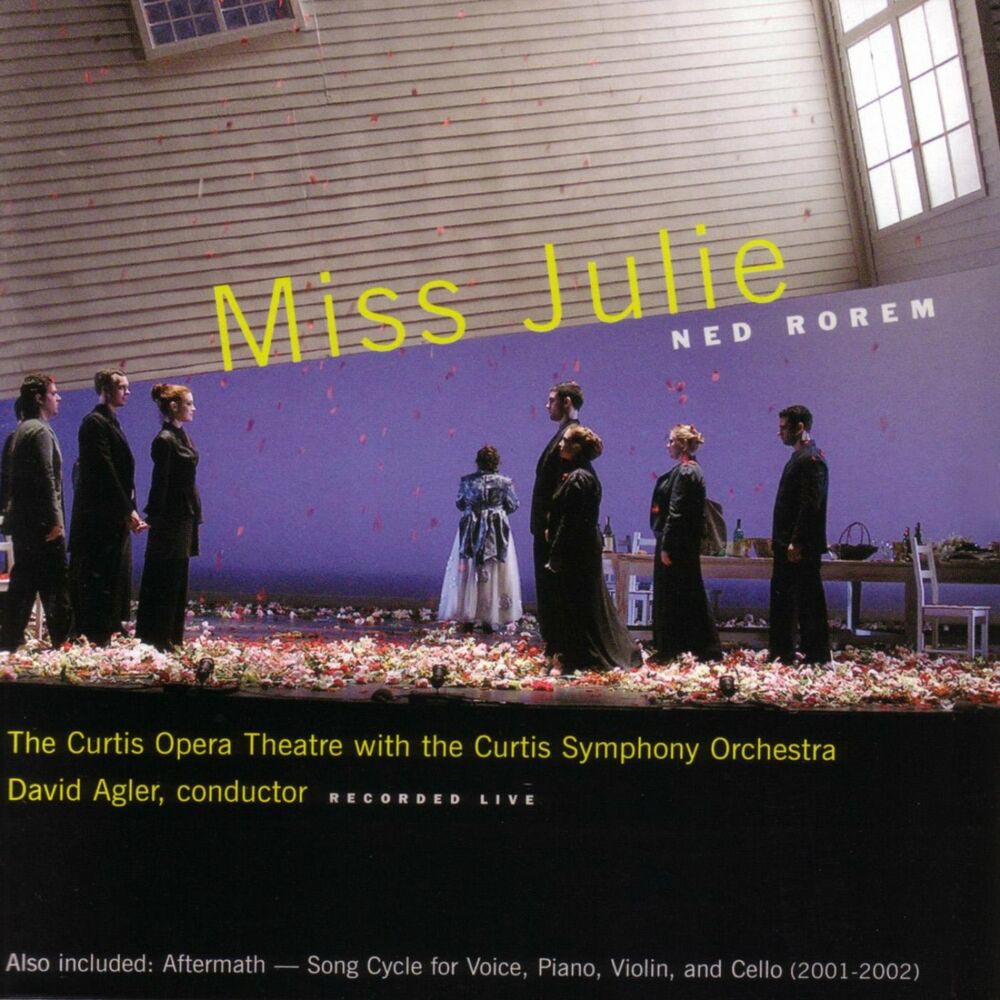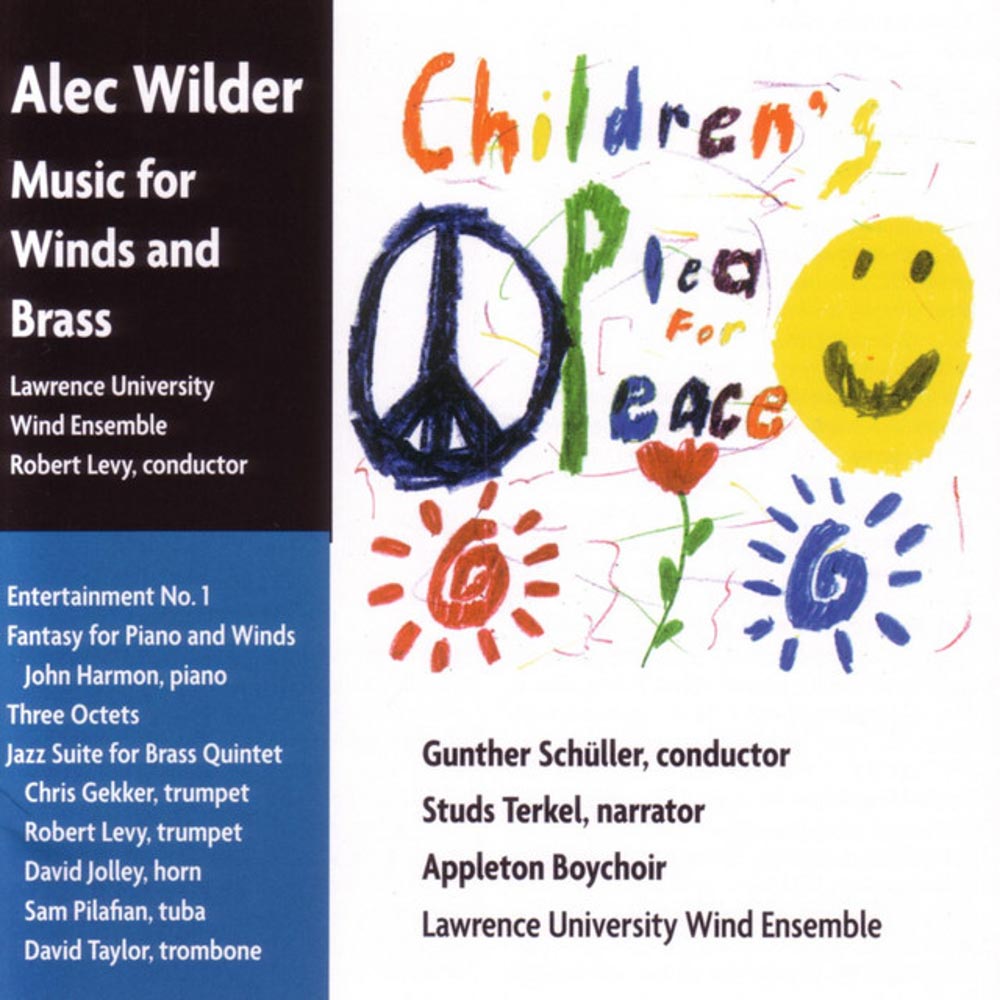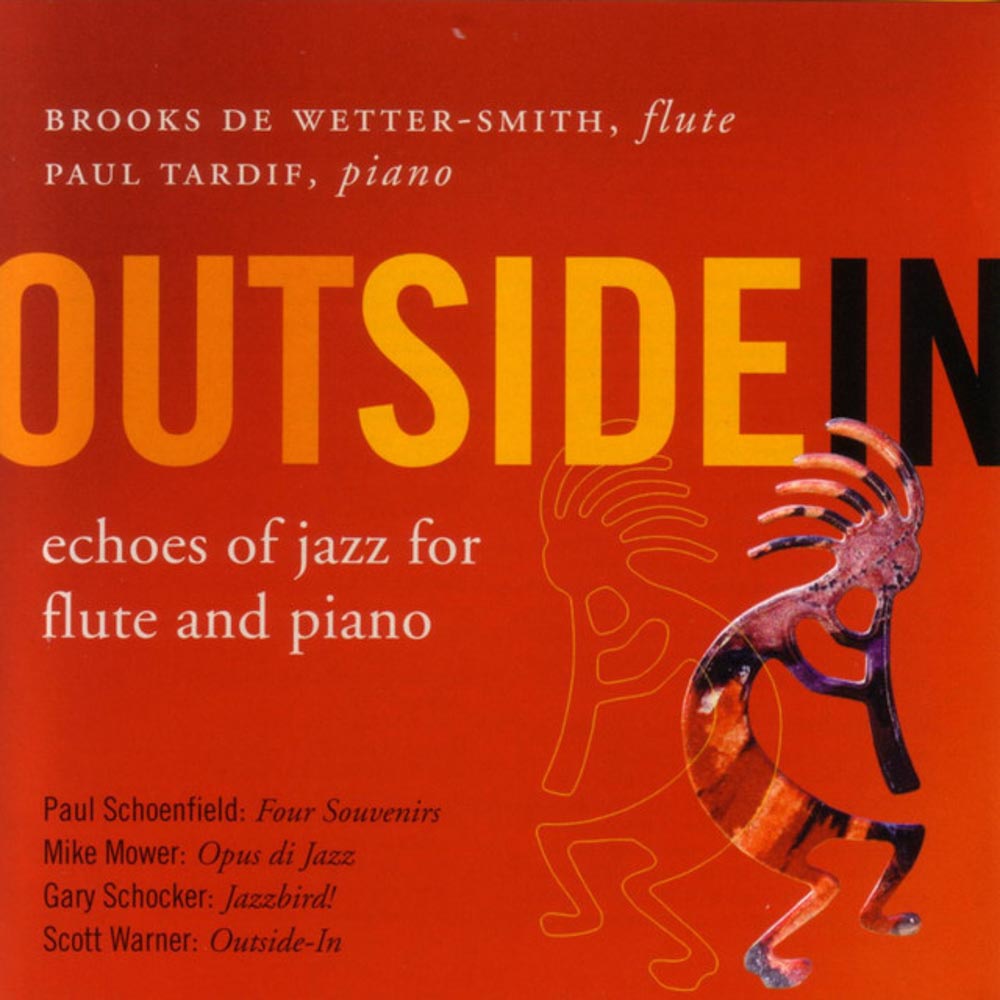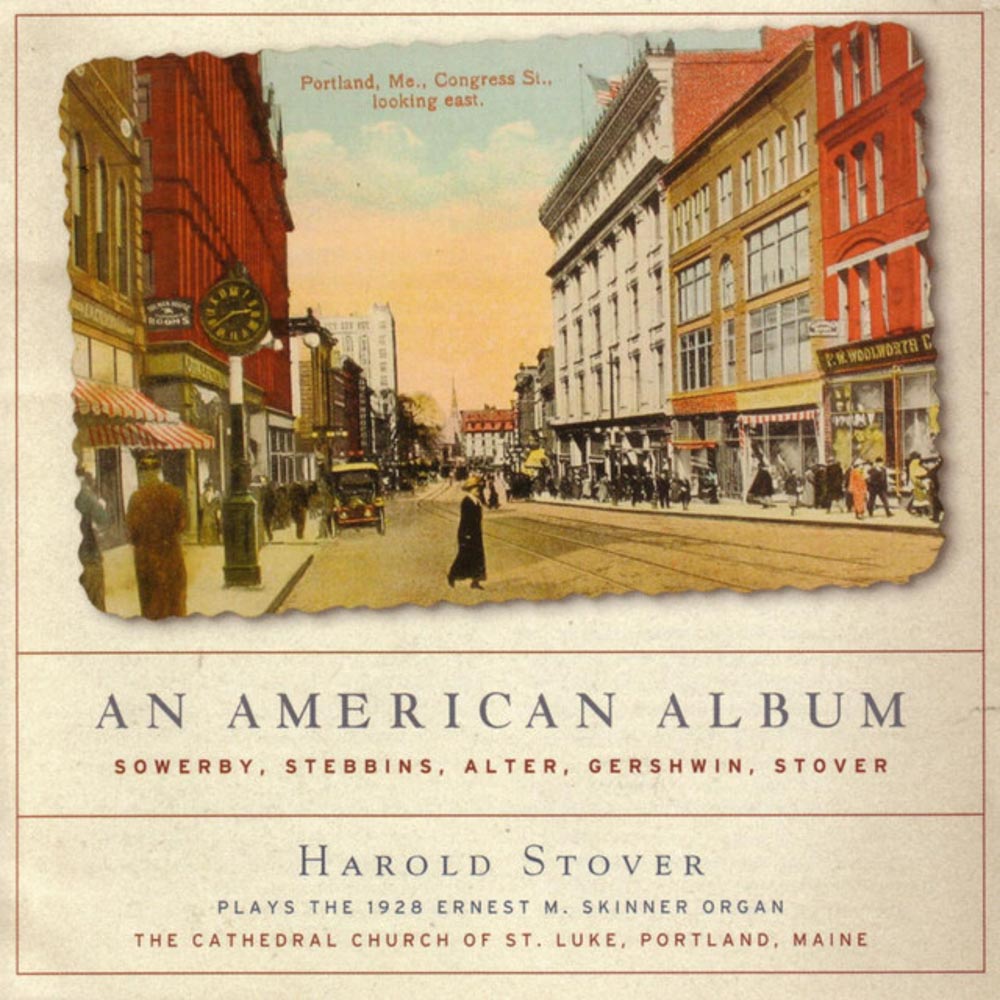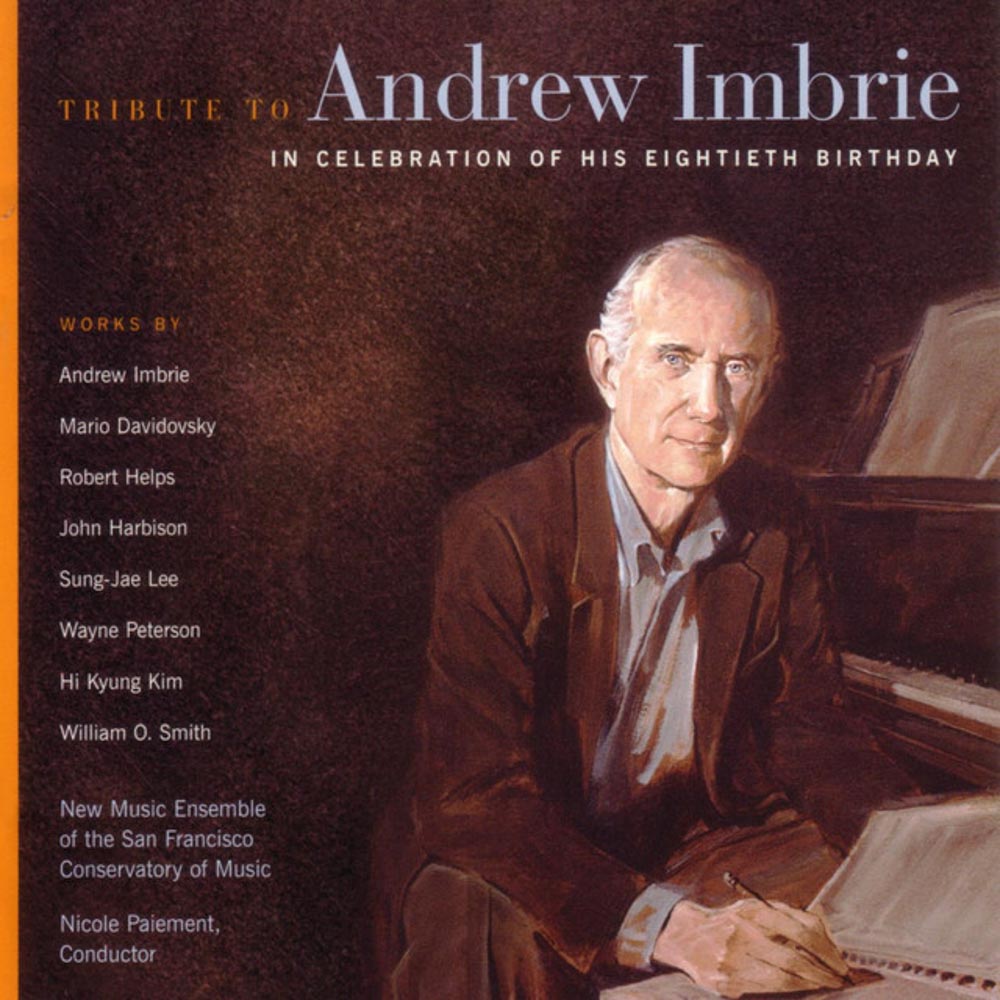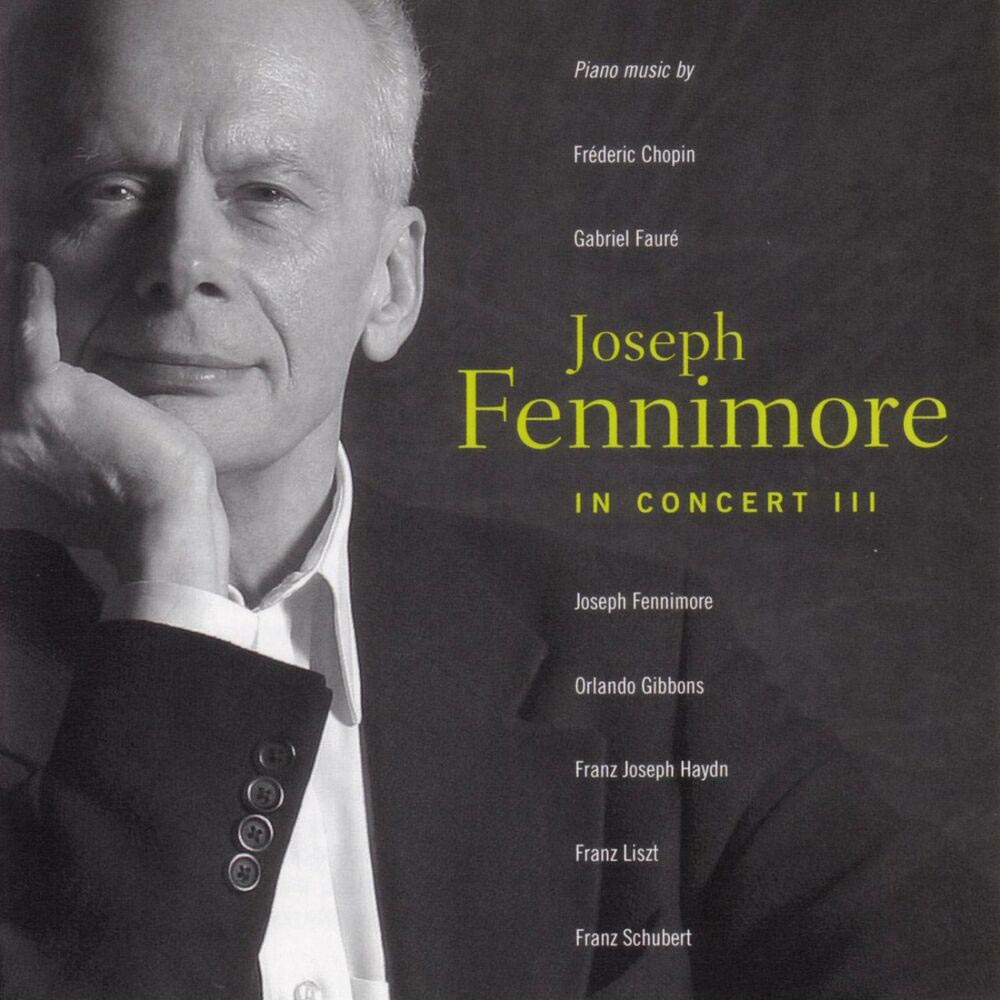Catalog #: TROY0732
Release Date: April 1, 2005OperaLuigi Mancinelli was a noted Italian composer of works for the stage, concert hall and church as well as for the early cinema. After studying in Florence, he served as an orchestral cellist before becoming a conductor at the Teatro Morlocchi in Perugia. As if to anticipate the celebrated rise to fame of Arturo Toscanini, Mancinelli stepped from his role as cellist to the podium to conduct Verdi's Aida, a feat which earned him an engagement as conductor at the Teatro Apollo in Rome where he appeared until 1881. Subsequently, his growing fame took him for conducting engagements to Paris, Milan, Bologna, Venice, London, Madrid and the Metropolitan Opera in New York. During his nine seasons as conductor there he led the first Met performances of Werther, Falstaff, Samson and Dalilah, Le Cid, The Magic Flute, La Boheme, Don Giovanni and Ernani, as well as his own opera Ero and Leandro. He also conducted in Rio de Janeiro, Buenos Aires and Lisbon - where he committed suicide in the aftermath of a bankruptcy. His works for the stage reflect a dramatic temperament. His first opera Isora di Provenza succeeded in Bologna in 1884, but failed in Naples in 1886. His next opera, Ero and Leandro, brought him international attention via premieres in London and New York, its libretto by the admiring composer and librettist, Arrigo Boito. Paolo and Francesca from 1907 failed - in part due to the unfashionable idealism and classicism of its libretto in an era when the ideals of verismo opera, championed by Mascagni, Leoncavallo and Puccini, were exciting audiences every where. However, the music of Paolo and Francesca is both rich in texture and has moments of real inspiration.
Catalog #: TROY0733
Release Date: March 1, 2005OrchestralRobert Ackerman is a rarity among musicians in our day and age: more than a performer who composes or a composer who performs, he transcends musical genres and styles, not only in his compositions, but performs all styles of music on four instruments (flute, clarinet, saxophone and piano). As if this were not enough, Ackerman has made a life of the study of acoustics and instrument design and has shared this information with generations of students not only as a public school music teacher, but also as an international lecturer and published author. His compositions have received Ford Foundation and National Endowment grants; he has performed with Steve Reich and Philip Glass; his big band charts and jazz tunes have found their way into the repertoire of some of the most influential jazz players of his age; and he has performed at most of the important jazz festivals the world over. Robert Ackerman was born in Irvington, New Jersey in 1940. His music studies began in New York City with Joe Soldo (Bell Telephone Hour) and the legendary Joe Allard (Juilliard School of Music) continuing with master teachers such as Thomas Nyfenger (Yale University), Keith Underwood, Eddie Saulkin, Harvey Boatright (Dallas Symphony), and Bob Morris (New York Philharmonic). Ackerman received degrees from Montclair State University and Columbia University in New York. After spending the 1960s in the New York concert music scene, Ackerman left for Europe and entrenched himself in the jazz scenes of Italy, Switzerland, France and Sweden, only to return to the States in 1985. This recording marks the first commercially available representation of his concert music.
Catalog #: TROY0734
Release Date: March 1, 2005OperaIt, regrettably, comes as a surprise to many, including highly informed and well-trained musicians that among the most important of the compositions of William Grant Still are his several operas. (NOTE: The Eileen Southern Biographical Dictionary of African American and African Musicians of 1982 lists six operas, but in fact there are nine). In addition to Highway One on this recording, there are also the operas: Blue Street, Troubled Island, A Bayou Legend, A Southern Interlude, Costaso, Mota, The Pillar, and Minette Fontaine. Judith Anne Still writes: "I will say this, my father had three loves in his life, in this order of importance: the Creator, his family, and the world of opera. He wanted most of all to be known as a composer of operas of great merit. He worked towards this goal with all his heart and mind, from the age of 14 until he became ill in the early 1970's, for 75 years. Most opera companies in the 20th century would not do the operas of William Grant Still because of his color. The fact that Still operas were not done, while Porgy was done, broke the composer's heart. There is much to be accomplished by way of justification. I am grateful to my parent's for dedicating this opera to me and my family, and to Louise Toppin, Philip Brunelle and VIDEMUS for putting their enormous talents and energies into this project. Bravo to the immortals who have opened the road to realizing the long-ago dream of a kind, noble and magnificently gifted man."
Catalog #: TROY0735
Release Date: April 1, 2005ChamberSteven Mackey has established himself as one of the most gifted and original American composers to emerge in recent years. Born in 1956, in Frankfurt, Germany to American parents, he was raised and educated in the United States. His early training in performance was as a classical and electric guitarist and Baroque lutenist. In 1977, he toured Europe as a lutenist under the auspices of the University of California; he graduated summa cum laude from that Institution. His studies culminated in a Ph.D. in composition from Brandeis University. Mackey is now Professor of Music at Princeton University, where he has been a member of the faculty since 1985. Mackey's idiom, a multi-layered world of rhythm and sonority, draws its expanded harmonic palette from western art music, its wit and vivacity from the imaginative transformation of popular music elements. His chamber music sometimes features re-tuned instruments and microtones. His orchestral works display consummate skill in their handling of instrumental color and texture. Tilt, commissioned by the American Composers Orchestra, received its premiere in 1992 under the direction of Dennis Russell Davies. Of that performance, Tim Page of Newsday wrote: "One was reminded of a radio caught between frequencies: timbres bang and shimmer, there are arpeggios and teasing references to musical clichés, and despite some occasional violent fortissimos, the mood throughout is lithe, subtle and more than a little playful. Anything can happen - and most of it does." His concertos offer a fresh look at the medium. In his first concerto, Banana/Dump Truck from 1994, the ensemble plays a jazzy vamp as the cello soloist emerges from the wings, like a variety show guest.
Catalog #: TROY0736
Release Date: April 1, 2005ChoralAlexander Levine was born in Moscow and studied piano from the age of six at the Gnessin Music School, and later he took up the clarinet. Upon graduation he was offered a place at the Moscow Gnessin Music Academy. During his college years he also held the position of Principal Guitar in the Orchestra of Russian National Radio and Television. In the years that followed he established himself as a composer working in collaboration with a variety of highly acclaimed performers in Russia. Since 1992, he has lived in the United Kingdom. He then continued to pursue his musical studies at the Guildhall School of Music and Drama where he studied with among others, Simon Bainbridge. The title Kolokola translates into English as church bells or rather the toll of the bells. A great deal can be said about the religious, historical, and philosophical aspects of bell ringing, and in Russian culture it had always been a particularly powerful, almost archetypal image. This image of church bells prevails throughout the entire work, which was originally conceived as a projection of various aspects of human existence with a wide range of historical, religious and Russian folklore cross-references. There are complete Russian/English texts included in the program booklet.
Catalog #: TROY0737
Release Date: February 1, 2005OrchestralRay Bono writes in his program notes: "Fiercely independent. Self Reliant. Self-disciplined. Such descriptions invariably surface in accounts of Paul Creston's life. More emphatic is the assertion that, excluding keyboard lessons, he was "entirely self-taught" in music. And, in fact, the short, affable Italian-American was in many ways a supremely self-made man, even down to his name. Born on October 10, 1906 in Manhattan to an impoverished couple from Sicily, he was christened Giuseppe Guttovergi (the family name would later be recast as Guttoveggio). In childhood he was also called Joseph but by 15 had been dubbed Cress by his friends, after Crespino, the role he played in a high-school staging of Goldoni's comedy, The Fan. Before long, he reworked this Cress into a fuller, solidly American-sounding name - and exit Giuseppe-Joseph-Guttovergi-Guttoveggio; enter Paul Creston. He started composing at the age of eight, soon after his parents, recognizing his musical ability, managed to get him a piano and a teacher. Within a few years, he was capable enough to substitute for the teacher when the man was ill - and canny enough to deem the man musically incompetent. He moved on to better piano teachers, took organ lessons too and plunged into a ferocious self-directed study of the works of Bach, Rameau, Scarlatti, Rimsky-Korsakov, Chopin, Debussy and Ravel. These masters of form, harmony and color, he would always maintain, were his true teachers; from them alone did he learn composing and orchestration. From the onset of the Great Depression, when he wasn't trying to sell insurance or real estate, Creston was accompanying singers as a Musicians Emergency Fund member - and pondering a career as a writer. Or a concert pianist. Or a composer. After a favorable response to a set of dances he wrote for solo piano in 1932, and to his incidental music for a theater piece - and encouraged by composer and concert organizer Henry Cowell, he sat down, took stock of his talents and decided to concentrate seriously on composition. His early modest pieces were successful enough to earn him a positive mention in Aaron Copland's 1936 article about "America's young men of merit" (although Copland grouped him with rising composers whose work tended to be "somewhat" abstract"). Larger works followed, and more attention. He received two successive Guggenheim fellowships. And his Symphony No. 1, debuting in 1941, won the New York Music Critics' Circle Award and later took first prize in an international competition in Paris. The three orchestral works on this disc - a symphony, a concerto and what amounts to a musical diptych - are from Creston's finest period. Never before recorded for commercial release, they exemplify his talent for uniting lyricism with propulsiveness to make a considerable emotional impact."
Catalog #: TROY0738-39
Release Date: January 1, 2005OperaThe 15th century poet Francois Villon, between scrapes with the law in Paris, wrote lyrics both poignant and bawdy. At the end of the 19th century, novelist R.H. Russell sentimentalized his career in a plot that borrowed the king-for-a-day motif, thus allowing Villon to defeat France's enemies and win the hand of an aristocratic lady, all in under 24 hours. Adapted as a play in 1901, by New York writer Justin McCarthy, If I Were King served as a star vehicle for E.H. Southern in a Broadway stage production. In 1923, Richard Rogers and Lorenz Hart were at the very start of their careers. They devised a musical version of the McCarthy play for a Manhattan girl's school and then looked for a more prestigious venue for their collaboration. Broadway backers turned down the young artists, but liked their idea, "borrowed" it from Rodgers and Hart and commissioned the more established Rudolf Friml to fashion a professional musical from the plot. Friml's Rose Marie was then enjoying great success in New York. Born in what is today the Czech Republic in 1897, Friml enrolled at age 14 in the Prague Conservatory (which was headed by Dvorak) and completed the six-year course in three years. He toured Europe and the United States as accompanist for violinist Jan Kubelik and made a piano debut in this country onstage at Carnegie Hall in 1904. Walter Damrosch and the New York Symphony premiered his Piano Concerto two seasons later, with the composer at the piano. Friml's true calling was as a composer of songs. In 1912, he was called in by Arthur Hammerstein to complete the music for a new work which Victor Herbert had abandoned, owing to a run-in with a temperamental soprano. The resulting operetta, The Firefly, was his first Broadway success, and would be followed by many others. Friml continued to live in America for much of the 20th century long after his sentimental musical style was considered old fashioned. As late as 1969, he was celebrated by Ogden Nash on the occasion of his 90th birthday in a couplet which ended: "I trust your conclusion and mine are similar: It would be a happier world if it were Frimler."
Catalog #: TROY0740
Release Date: March 1, 2005VocalPaul Sperry writes: "I've always loved to perform humorous pieces, whether slyly witty or raucously funny. It seemed irresistible to collect these four marvelous pieces together on a CD since they are all by American composers and writers and they all deal with religious topics in, as Woody Allen puts it, 'a somewhat dubious way.'" Classical jazz achieved international recognition in 1925, when Louis Gruenberg's The Daniel Jazz was chosen to represent American music at the Venice Festival of the International Society for contemporary music, where it won overwhelming success. Based on a sermon poem by Vachel Lindsay, this piece was written during a period when Gruenberg was exploring the possibilities of popular jazz as an idiom in classical music. In 1924, he wrote: "It has become my firm conviction that the American composer can only achieve individual expression by developing his own resources...these resources are vital and manifold, for we have at least three rich veins indigenous to America alone: jazz, Negro spirituals and Indian themes." Alla Borzova writes: "Mother Said borrows its title from the book by Hal Sirowitz. His witty and touching poetry is about families and relationships. In Mother Said, I use a variety of musical styles and techniques: rap, Klezmer, Dixieland, a Chinese folk tune and a 12 tone row." The text of Tango was actually compiled by Robert Xavier Rodriguez from news clippings, letters and sermons from the height of the tango craze in 1913-1914. There are three short scenes played without pause and the tenor plays all three roles. Larry Alan Smith writes: "The Scrolls was written for my New York debut concert in 1982, and it was premiered by Paul Sperry. As it was meant to conclude the evening, I looked for something unusual, entertaining and memorable. Woody Allen's tale immediately appealed to me, but only after beginning to compose the work did I realize how challenging it would be to set a humorous text effectively."
Catalog #: TROY0741
Release Date: August 1, 2005ChoralComposer Larry Bell has been awarded the Rome Prize, fellowships from the Guggenheim and Rockefeller Foundations, and the Charles Ives Award. His music has been widely performed in the United Sates and abroad by internationally known orchestras and ensembles. Bell received his DMA from The Juilliard School, working in composition with Vincent Persichetti and Roger Sessions. He is chair of music theory at the New England Conservatory of Music Division of Preparatory and Continuing Education. This disc of Bell's song cycles begins with The Immortal Beloved based on the three letters Beethoven wrote to Antonie Brentano in July 1812. According to the composer, "The music was conceived from the point of view of the recipient of the letters.... Four Sacred Songs were designed as studies for a larger commissioned orchestral work entitled Sacred Symphonies. Each song is a setting of a familiar hymn tune text." Songs of Time and Eternity are based on a grouping of poems by Emily Dickinson on this theme. William Blake's late 18th-century Songs of Innocence and Experience "...is a famous example of an adult's perspective of the child. The child in these poems is rebellious, joyful, persistently playful, Christ-like, and always natural..." The work is written for children's chorus and orchestra.
Catalog #: TROY0742
Release Date: March 1, 2005OrchestralThe conductor James Freeman writes: "When a young composer named Gerald Levinson applied for a position in Swarthmore College's Music Department (of which I was then acting chair) more than 20 years ago, I was struck by an extraordinarily luminous, beautifully written piece called in dark which he had included in his portfolio. That piece and several others in the same folder showed so much imagination, feeling for color, and downright compositional skill that I had no doubt this was the composer we were looking for. A heartfelt and passionate letter from Olivier Messiaen only added to my departmental colleagues' and my own conviction that Levinson must be "the real thing." We were counting on the new person to teach the major part of our theory cycle, and young Levinson had absolutely no teaching experience of any kind. Nonetheless, we took a chance and hired him. Anyone who wrote such wonderful music had to be a great teacher and he was. When Orchestra 2001 was founded in 1988, it was the music of George Crumb (which is currently being recorded for Bridge) and Gerald Levinson that I especially wanted to bring to new audiences." The critic Paul Griffiths has written: "What must thrill anyone who comes in contact with Gerald Levinson's music is its sheer joy in sound, and the decisiveness with which it sings or dances its way through time.... In sympathy with sound, in sympathy with time, Levinson's music is close to the natural phenomena on which all music depends. Two things spring from this. One is that his music can easily evoke other natural phenomena: the sea, the stars, rugged landscapes. The other is that this music is in tune with other kinds of music from around the world. Levinson's resources are classical western: he writes for the symphony orchestra, for the piano, and for chamber groupings of conventional instruments. His disciplines, too, are those of the western tradition. But the east was present in his music even before his first trip there. His works, right through his career so far, exist on companionable terms with Mahler's music and with Bali's, with Ravel's and with Japan's, with Messiaen's and with India's, with Stravinsky's and with China's, with America's symphonic tradition and with Tibet's slow melody. Out of all this he is creating, piece by piece, a world of his own."
Catalog #: TROY0743
Release Date: May 1, 2005OrchestralXylem is a short, energetic piece that amplifies a microscopic world, creating perpetual motion punctuated by explosive bursts. It takes its name from the tissue made of long tubular open-ended cells that conducts water from the soil up to the various parts of plants. Orianna Webb currently teaches composition at the Cleveland Institute of Music where she is a founding director of the Young Composers Program. Shulamit Ran writes: "My having been commissioned by the National Flute Association for a flute concerto in celebration of that organization's year 2000 convention was, for me, a much-relished opportunity to further explore the direction I found myself pursuing in earlier works." The work was premiered on August 19, 2000, with Patricia Spencer, flutist, and Ransom Wilson, conductor. Samuel Adler writes: "Nostalgia plays a role in the creation of many works of art. This was certainly the case in my writing this particular orchestral work that was composed for the Texas Little Symphony and John Giordano in the summer of 1982. For a long time now, I have had a love affair with Texas and also with music of the rather distant past. The resulting work was one which I had wanted to do for many years, namely, a dance suite based on Medieval, Renaissance and Baroque themes. These dances are treated as recompositions rather than arrangements. While the actual tunes in most of them are from a bygone era, the compositional techniques employed are of the 20th century and result in a metamorphosis of the old material. In other words, it is as if a contemporary composer took a journey into the past, fell in love with seven dance forms, brought them back to our century and rewrote them for he felt they still give off the same charm, excitement and contemporaneousness which they did when they were originally conceived." Chen Yi is currently the Cravens/Millsap/Missouri Distinguished Professor at the University of Missouri-Kansas City. She received her bachelor's and master's degrees in music composition from the Central Conservatory in Beijing, and a doctorate from Columbia University. Her composition teachers include Chou, Davidovsky, Wu and Goehr. She has served as composer-in-residence for the Women's Philharmonic, the vocal ensemble Chanticleer and the Aptos Creative Arts Center (1993-1996) supported by Meet the Composer. Kevin Puts's Inspiring Beethoven was commissioned by the Phoenix Symphony, Hermann Michael, conductor, for their Beethoven Festival in January 2002. The work is a musical tale of Beethoven transcending the grim realities of his life and finding the inspiration to compose the joyous first movement of his Symphony No. 7. Puts has received degrees from the Eastman and Yale University Schools of Music, and currently serves as assistant professor of composition at the University of Texas at Austin.
Catalog #: TROY0744
Release Date: June 1, 2005VocalJeremy Nicholas writes: "Phrases that chill the heart: 'I want a volunteer from the audience.' 'Is this your car, sir?' 'Have we shown you our holiday snaps?' Or how about "Tonight's lecture is on the art of writing comedy." Go to that seminar and one thing you know for sure in advance is that you are consigning yourself to an evening devoid of any humor. Dissecting comedy, analyzing jokes or, in this case, comic songs, has all the allure of pulling off the wings of a butterfly to see how it flies. Setting off writing a comic song is rather like being your own crossword compiler, designing the grid, filling in all the squares, setting your own clues. No, it's not, really. It's more like taking a pile of kid's building bricks and making a spectacular skyscraper from them. No, that's not it either. But there are elements of both that are pertinent (a good word for seminars)." In other words, comedy (and comic songwriting) is hard work. Think of the last time you told a joke and it didn't come off. The material was right but maybe the delivery was off. But remember the joy when the response was perfect: not only did they laugh, but you sensed the anticipation: this is going to be funny. And for this album, the anticipation certainly pays off. Anyone who grew up in the 1950's and 1960's will recall the wonderful humor of the works of Tom Lehrer, the classic HMV (Angel in this country) LP's of Michael Flanders and Donald Swann. More recently we've seen how Stephen Sondheim and William Bolcom can easily move back and forth between the serious and the humorous. And just to prove that comedy can be serious business, we have the participation of Marc-Andre Hamelin, one of the most highly regarded concert and recital pianists as accompanist and composer, joined by his wife Jody Karin Applebaum. Her resume includes performances of Bach's Christmas Oratorio and St. Matthew Passion, Handel's Messiah, to contemporary works by Stephen Albert, Heitor Villa-Lobos and Gorecki. Together they have performed in New York, Philadelphia, Washington, D.C., Canada, England and the Middle East. Together they have recorded music of Britten, Schoenberg, Bolcom, Wolpe, Weill, Satie and Poulenc. Here both they and you have some fun for a change!
Catalog #: TROY0745
Release Date: March 1, 2005InstrumentalPeter Kairoff writes: "The music of George Whitefield Chadwick is not nearly as well known as it ought to be. Although widely respected and admired in his lifetime, his music fell into relative obscurity after his death, and is only recently performed once more with any frequency. His piano music, in particular, has suffered from neglect: very few of the pieces on this disc have ever been recorded before. Why this should be so remains something of a mystery, for many of Chadwick's piano works display the same inventiveness, charm and craftsmanship found in his orchestral and chamber works. The title of this disc - American Character - reflects the fact that all of Chadwick's piano music is written in the style of the 'Character Piece': brief, memorable evocations of one particular mood or image. Chadwick was certainly able to craft large-scale forms when he wanted to, as he did in his symphonies and chamber works to great effect. But his piano works are all on a smaller scale, like Mendelssohn's Songs Without Words, Grieg's Lyric Pieces, and so many other piano pieces of the nineteenth century. And like those models. Chadwick's piano music often evokes the world of Art Song, that wonderful and evocative fusion of poetry and music which was so popular in the nineteenth century. Like Art Song, these piano pieces capture a single vivid mood or visual image: a rushing stream, an aspen tree shuddering in the breeze, or even a group of noisy frogs. At his death in 1931, Chadwick was hailed by the influential critic Olin Downes in The New York Times as the composer who "represents most completely the body of serious American music." Taste shifted, of course, and all too soon Chadwick's music was forgotten, or dismissed as old fashioned. But now taste seems to be shifting back, and we are better able to appreciate the creativity, craftsmanship, and charm of a composer who himself was something of an American Character."
Catalog #: TROY0746
Release Date: April 1, 2005ChoralThis recording brings together a variety of choral works by 20th century Latin American composers, all of whom find inspiration in folk culture. Chief among the composers represented here is Ariel Ramirez. Born in Santa Fe, Argentina, he roamed the South American hinterland in his early twenties playing piano and studying regional musical traditions. After a brief stint in Buenos Aires, he spent several years in Europe, studying in Madrid and Vienna and teaching music in a German convent. Returning to South America in 1954, he completed his musical training in Buenos Aires, where his politically engaged popular songs rapidly earned him renown as a leader of the nueva cancion movement. His breakthrough onto the international stage came in 1967 with the first performance and recording of the Misa Criolla (Mass in Native Style). The success of this innovative work owes much to its timing. Set in Spanish rather than Latin, it was one of the first major masses composed after the Second Vatican Council mandated the use of the vernacular. It also profited from the period's burgeoning interest in folk music. As a result, the work quickly captured the imagination of audiences worldwide and has received thousands of performances. The mass's reception abroad, where its style was perceived as novel and exotic, actually helped stimulate appreciation for native culture among more skeptical audiences back in Argentina. Like all Ramirez' major works, the Misa Criolla draws substantially on the folk traditions in which he immersed himself as a young man. There are complete English texts for all the works included in the program booklet.
Catalog #: TROY0747-48
Release Date: April 1, 2005OperaLee Hoiby's opera A Month in the Country was originally commissioned and first performed by the New York City Opera in 1964. This performance was recorded live for the 40th anniversary performance of the opera by the Manhattan School of Music Opera Theater. In the New York City of 1964, appearing in the guise of an opera by composer Lee Hoiby and librettist William Ball, Turgenev's A Month in the Country caused concerns for the artistic team. Ball had his first New York success as a director of plays. In 1943, he had directed A Month in the Country and had loved it ever since. In 1959, he had heard Hoiby's first opera, The Scarf, a one acter based on Chekov, at the New York City Opera where Ball was directing Hugo Weisgall's Six Characters and Mozart's Cosi. Ball immediately asked Hoiby to consider collaborating with him on setting the Turgenev. He agreed and the Ford Foundation supported the project and the opera we present here was born.
Catalog #: TROY0749
Release Date: April 1, 2005InstrumentalThe pianist Olga Solovieva writes about the piano music of Boris Tchaikovsky. "If I were to formulate what is most important to me in this music, I would say: sincere, straightforward, and simplicity in expressing ideas, feelings and states of mind that are far from being simple, unambiguous or superficial. A remarkable feature of his works is their saying just what is needed to be said, without any regard for the conventions of music." Once Boris Tchaikovsky was asked about his favorite composer. Having a chance to avoid the question, he nevertheless answered: "If I had to choose, I would choose Mussorgsky." Olga Solovieva graduated from the Russian Academy of Music named after Gnessins (Moscow) in 1998 and took a post-graduate course in the same Academy as an assistant to Professor Leonid Blok in 1998-2000. At the XII International Tchaikovsky Competition in Moscow in 2002, she won a special prize and was awarded a special diploma "The Best Accompanist" (accompaniment to cello). Currently she teaches at the Gnessins Musical College and works at the Moscow Conservatory.
Catalog #: TROY0750
Release Date: April 1, 2005VocalJoseph Summer's preoccupation with the works of Shakespeare began in 1991, when he set the soliloquy "To Be or Not To Be" for tenor and piano. This project kindled a spark that grew rapidly and forcefully, and has burned undiminished to the present day. The tally now stands at over fifty settings contained in six books, known collectively as the Oxford Songs. These range from short arias for solo voice to fully orchestrated cantatas for several singers lasting over half an hour. In June 2000, a twenty-minute setting of the famous balcony scene from Romeo and Juliet was commissioned and premiered at Merkin Hall in New York City. Beyond the Oxfordian realm, Joseph Summer has completed seven operas and numerous orchestral works. In 2003, in collaboration with music director John McGinn, Summer founded The Shakespeare Concerts. To date, this series has presented concerts of Bard settings (by Summer and others) to audiences across Massachusetts, as well as St. Thomas in the Virgin Islands. In its second season, it featured singers from Opera Unlimited of London, England. This CD is drawn from the Oxford Songs and represents the debut album of the Shakespeare Concerts.
Catalog #: TROY0751
Release Date: September 1, 2005ChamberThe wild, exotic music of Heitor Villa-Lobos, the most famous 20th century Brazilian composer, conjures up the impetuous, frenzied spirit of his country. At an early age, he studied folk music and absorbed its heady sounds. Throughout his symphonic works, such as the famous series of Choros and the Bachianas Brasileiros, which fused the Brazilian style with the formal structure of J.S. Bach, he demonstrated a remarkably free nature, never enslaving himself to any trends or "isms." The liberal use of multiple rhythms and harmonies simultaneously in the same work gave his music a wonderfully tangy sound. Though best known for his orchestral music, he did commit himself to that most sophisticated of chamber music forms, the string quartet, producing 17 remarkable works from 1915 to 1957. All three of these works reveal the sheer genius of his technique and the way he was able to use his unique style to "open up" the usually introspective world of the string quartet. These authoritative performances, recorded in the 1960's, are by the Brazilian String Quartet, founded in 1952. Over the years they have performed hundreds of concerts in Brazil, North, Central and South America and in Europe, performing at many important festivals. Known for their championing of Brazilian composers, they have performed and recorded works by Claudio Santoro, Alberto Nepomuceno, Jose Siquera and many others. They have received numerous awards for promoting Brazil, and the Quartet has been hailed as "Ambassadors of Brazilian Music." The President of Brazil has bestowed his nation's highest decoration on the Quartet, the Order of Rio Branco.
Catalog #: TROY0752
Release Date: May 1, 2005InstrumentalTim Page, the chief music critic for The Washington Post and the Pulitzer Prize Winner for Distinguished Criticism in 1997, writes: "This collection of new and historic recordings pays tribute to a great man, one who never let his hard-won artistic distinction eclipse his personal duties as a fellow human being. After all these years, it is a wonderful thing to be able to spend more time in the company of Charles Jones. Jones adapted his Five Melodies for Violin and Piano from an earlier set of Five Melodies for Orchestra (1945), and it is a mark of the composer's sure sense of economy that he was able to make such a seamless reduction, without a wasted or extraneous note. One of the delights of this recording is the opportunity to hear Jones' Piano Sonata No. 2 played by William Masselos. Indeed, composer and pianist seem to have been made for each other. And then we have the Symphony No. 3, composed in 1962, and recorded by the brilliant young conductor, Michael Adelson (who has shown a welcome devotion to Jones' music) in 1993. Here - finally! - we have the opportunity to hear one of Jones' major orchestral works on record."
Catalog #: TROY0753
Release Date: August 1, 2005VocalComposer-pianist Gary Smart composes, performs, and improvises music that reflects an abiding interest in Americana, world musics and jazz, as well as the western classical tradition. An artist with a wide range of constantly developing interests, Smart has lived and worked in the eastern, midwestern and western USA as well as in Germany, Japan and Indonesia. He has studied with composers Yehudi Wyner, Toru Takemitsu and John Corigliano; worked with jazz composer David Baker and film composer Henry Mancini; and studied piano with Jorge Bolet, Yale scholar-keyboardist Ralph Kirkpatrick and jazz pianist Oscar Peterson. He is a graduate of Indiana University and the Yale School of Music. Dr. Smart is currently Yessin Professor of Music at the University of North Florida in Jacksonville. Smart talks about his relationship to songs. "As a child I learned hundreds of pop songs, the great tunes of Berlin, Kern, Gershwin, Rodgers, Ellington, etc. My sense of melody, harmony, and textural inflection is as much influenced by classic American popular songs as it is by the great European art song tradition, which I love, but which I discovered only after entering college. These genres of course have much in common: primarily, an equitable marriage of words and music....For me, a song doesn't work unless the two become one, inseparable." Set to poems by Elizabeth Barett Browning, Langston Hughes, Hart Crane, William Carlos Williams, Sara Teasdale and Emily Dickinson, as well as a moving letter from a Civil War major to his wife, Smart's song cycles show his commitment to the song as a form of chamber music.
Catalog #: TROY0754
Release Date: May 1, 2005InstrumentalThis recording's selections exemplify many of the features found throughout the extensive but largely little known body of Polish violin-keyboard writing. The wide stylistic variety parallels the diversity within Poland's cultural traditions shaped, in turn, by a long history of frequently changed borders and territorial makeup. Starting long before Poland's culturally progressive "Golden Age" (mid 15th-16th centuries), these connections occurred through trade, religious, intellectual, artistic, marriage and other contacts. As a result, this music, like the rest of Poland's culture, is generally western-oriented but sometimes includes distinctive eastern elements. Folk elements are often equally important. Most obvious is the use of Polish dances, e.g. the mazurka, but dance-related rhythmic figures, or their characteristic accents on normally less-strong beats or rhythmic subdivisions are often transplanted to non-dance settings. The historical association of Polish folk traditions with fiddles and then the violin itself (long Poland's most popular folk instrument), is so close that Poland's classical violin performance tradition reaching back to c. 1500 can also be considered to be an extension of her much longer folk practice. While the earliest of Poland's many widely-famous violinists date from the 19th century, numbers of Polish violinists were already known for their high level of performing throughout Europe in the 16th century. Likewise, effective keyboard writing on this CD reflects a rich Polish keyboard tradition, sometimes with the composer being either a performing pianist (like Chopin and Paderewski) or able to play the instrument with a high degree of accomplishment (Bacewicz).
Catalog #: TROY0755
Release Date: July 1, 2005Wind EnsembleAlbany Records is proud to release what is a long-overdue memorial to one of the finest American composers of wind ensemble music. Chance was a gifted composer, teacher and administrator who died a tragic death by accidental electrocution at the age of 39. He studied theory and composition with Kent Kennan, Clifton Williams and Paul Pisk. If you are familiar with the "old school" of band music, Chance is as fine a representative as any. His music is brash, exciting, and highly energetic in the way you remember from those works you heard on those great old Mercury recordings with the late Frederick Fennell. Ironically, though such works as the Blue Lake Overture and Variations on a Korean Folk-Song have been in the active band repertory for years, this is the first major commercial release entirely devoted to his music, a "greatest hits" package in fact. Standing out in particular is the Symphony No. 2, perhaps the best work of its kind since the Persichetti Symphony (No. 6) for Band. Based on a four-note motif of C#-D-F-E, the music whips up a remarkable amount of tension and excitement, especially in the last movement. The authoritative performances are under Stephen K. Steele, who began directing the Band Department at Illinois State University in 1987. Under his direction, the Wind Symphony has performed for state and national conventions, including the 1990 American Bandmasters Association and the 1993 and 2001 College Band Directors National Association. Steele and the Wind Symphony can also be heard on two previous releases, TROY500 (music of Persichetti, Syler, Zaninelli and Maslanka) and TROY600 (music of Maslanka and Hagen). Albany has had great success with our catalog of wind music, and we feel this new release, honoring John Barnes Chance, is one of finest.
Catalog #: TROY0756
Release Date: May 1, 2005ChoralJohannes Somary has achieved international prominence as conductor, composer, and organist. He is now in his 44th season as founder and Music Director of AmorArtis in New York. As a composer, he has won critical acclaim for his oratorios Ballad of God and His People and The Ultimate Quest as well as his dramatic cantata Is This Life?, given its premiere at the Kennedy Center in Washington, DC in 1994. As an organist he has received critical acclaim for his recording of the Handel concerti. As a teacher, he served for nearly four decades as chairman of the arts-and-music department at Horace Mann School. He is currently artist-in-residence at the Church of the Blessed Sacrament in New York City and in his 30th year as conductor of Connecticut's Fairfield County Chorale. He was born in Zurich, Switzerland and graduated from Yale University. The composer writes: "Taroko Concerto for Violin and Orchestra, is so named because much of the melodic material first came to me on walks with a friend in a little mountainous region of Taiwan called Taroko. It was composed during the two months following my departure as music director of Saint Patrick's Cathedral in New York. It was completed in October, 2003 and is in four movements. Easter Fantasia was first composed as a sonatina for trumpet and organ. In this form it was frequently performed by Martin Berinbaum, with me at the organ. It was re-designed for trumpet and orchestra in February, 2004. Much of the thematic material is based on Gregorian chants proper to the Easter season. The ancient hymn of thanksgiving known by its first two words, Te Deum, is still sung at the end of Matins on Sundays and on major feast days in convents, monasteries, and some churches all over the world. It is a jubilant hymn of praise to the Almighty. The Te Deum for the Millennium, which was commissioned by the International Order of Benedictines, was composed in 1999 and premiered in New York on May 23, 2001. The work is a celebratory cantata scored for soloists, chorus and chamber orchestra."
Catalog #: TROY0757
Release Date: May 1, 2005InstrumentalFrom the Hollywood Bowl to the National Cowboy Hall of Fame, from Carnegie Hall to the "Meet in Beijing" International Arts Festival, Edward Knight's music has found a home straddling the worlds of jazz, concert and theater. Born in Ann Arbor, he earned his DMA from University of Texas at Austin. He studied privately with John Corigliano and was the first American to win the Sir Arthur Bliss Memorial award, for outstanding postgraduate composer at London's Royal College of Music. Knight is a "fresh, original voice" with "an inventive sense of humor" (Bernard Holland, The New York Times) who creates music that is "visceral in its excitement" (John von Rheim, Chicago Tribune). Wayne Lee Gay of Knight-Ridder News Service calls Knight's music "inventive and melodic." Timothy Mangan of the Los Angeles Times cites "the composer's canny combination of steady meter with atonal lyricism, a waltz-like lilt with expressionist angst." Mangan notes that Knight's orchestral work is "tightly unified, suave and sinister, confidently orchestrated." Recent awards include Best Song Cycle in the American Art Song Competition sponsored by the San Francisco Song Festival; ASCAP's Rudolf Nissim Award; first prize in the National Orchestra Association's New Music Orchestral Project and fellowships to Yaddo and MacDowell.
Catalog #: TROY0758-59
Release Date: August 1, 2005OperaCold Sassy Tree, Carlisle Floyd's first crack at writing a comic opera, is taken from Olive Ann Burns' delightful exploration of youthful old age and set in an America affectionately drawn. As always, he has written his own libretto, drawing upon his own theatrical instincts that have been nourished simultaneously with his music. Like five of the six Floyd operas that preceded it, Cold Sassy Tree is about American attitudes, characters - and the joy of language. Like all the work that preceded it, the music is about expressive clarity, lyricism and the value of song. According to Daniel Webster, "Floyd writes popular opera. Not pandering opera, but theater pieces strapped tight with technical virtuosity, yet sounding innocent and natural..." Carlisle Floyd comments that "In dramatizing the book for the stage, there were two undergirding themes in particular from the novel that I wanted to deal with. First was the astonishing capacity human beings possess for change and growth, and the second was the healing and transforming power of love. When the book first appeared one reviewer aptly described Ms. Burns' novel as the story of an old man growing young and a young man growing up and the woman who, without intending to, becomes the catalyst for both. This general description holds true, I hope, for the opera as well." This recording represents a major addition to the opera discography.
Catalog #: TROY0760
Release Date: June 1, 2005ChoralThe British composer, author and critic Peter Dickinson was born at Lytham St. Annes, Lancashire on November 15, 1934. His musical personality ranges widely from the three substantial concertos for organ, piano and violin (the first two on Albany TROY360) to the witty Rags, Blues and Parodies collection (TROY369); the Song Cycles (TROY365) show Dickinson responding to major poets such as Auden, e. e. cummings and Dylan Thomas and the vocal works have expanded the picture of his literary interests with settings of Emily Dickinson and the British poet John Heath-Stubbs. If you are a fan of British music that tilts to a more modern sound (similar to Harrison Birtwistle or Peter Maxwell Davies), Dickinson's works will have great appeal to you. Of additional interest is the participation of such important performers as Eric Parkin and the King's Singers. The Unicorns features renowned Swedish soprano Elisabeth Soderstrom in the reissue of the previously hard-to-find Bluebell LP.
Catalog #: TROY0761-62
Release Date: June 1, 2005ChamberWhat a coup it is to have this significant live performance from 2003 performed by the music department at Curtis Institute where Ned Rorem first studied in the 1940's and has been a faculty member for over 20 years! As a major addition to the opera, we have a new work, Aftermath, where Rorem, as have so many other composers over the past four years, responds to the tragic events of September 11, 2001. As Rorem writes, "In the wake of the September 11th shock, I asked what a thousand other composers must have asked: what is the point of music now? But it soon grew clear that music was the only point. Indeed, the future will judge us, as it always judges the past, by our art more than our armies- by construction more than by destruction. The art, no matter its theme or language, by definition reflects the time: a waltz in a moment of tragedy, or a dirge during prosperity, may come into focus only a century later. As a Quaker, I was raised to believe that there is no alternative to peace. Perhaps it's wrong, perhaps right, but I am not ashamed of this belief..." Rorem, born in 1923, is one of our great lyrical composers, described by Time magazine as the world's greatest composer of songs. His output encompasses far more than that, of course: three symphonies, four piano concertos, chamber music, other works for orchestra, all of which display a wealth of melody and a distinctive, unique instrumental sound (listen sometime to the Symphony No.2, whose brief second movement is essentially an instrumental song). Rorem's prowess as a vocal writer (and author of 14 books) lead him, naturally, to this adaptation of the classic play by August Strindberg, presented here in a remarkable, vivid performance and recording.
Catalog #: TROY0763
Release Date: May 1, 2005ChamberAlec Wilder was a man of many parts, in every way unique and unforgettable. Always in coat and tie, possessing an almost Edwardian sense of courtesy, he lived a nomadic existence, traveling with most of what he owned in two suitcases. Enigmatically sophisticated to a degree impossible to describe, he could sit and talk to young children with a kind of innocent gravity, leaving them wide-eyed and attentive, then later he might blow bubbles down a staircase at a formal dinner party. Unspeakably well read, he would breeze through the London Times crossword puzzle (in ink), yet he never held himself above anyone, a genuinely humble man - albeit with no tolerance for pretension in anyone. As a musician, his discerning ears reacted immediately to a performer's style: a moment of his approval would remain a treasured memory for life. After all, he was revered by the likes of Eileen Farrell, Charles Mingus, and Frank Sinatra, and he really did know what was "right" and what was not. A composer of hundreds of songs and huge catalog of chamber music, Wilder created an oeuvre that is unusually diverse yet characteristically American. Categorizing his work has not been an easy task for musicians and critics, as it does not clearly "fit" into any one slot. That, along with his frequent use of popular and jazz elements and a penchant for writing lighthearted divertimento-like movements or entertainments, has often led to his being dismissed as not being a "serious" composer, while his craftsmanship and lyrical sentiment went largely ignored. In a society quick to put labels on things, he has been an enigma. While his music was championed by many of this country's leading performers during his lifetime, Wilder did little to further his own cause and shunned every opportunity to gain further recognition. Most of his chamber music was unpublished until the last years of his life. Now, nearly 25 years since his death, it is heartening to see new recordings by a whole younger generation discovering his music for the first time. This new Albany disc is just such an example.
Catalog #: TROY0764
Release Date: June 1, 2005InstrumentalMusic for flute and piano is very popular these days, not only for performers to study but for serious listeners who are drawn to the sensuous sounds of that instrument. American music for this combination is remarkably popular, if you just look at the record listings. This new release not only features two premiere recordings (the Schocker and Warner) but a particular theme common to all four: the influence of jazz. Each of the composers embraces this form from a remarkably different perspective. For one, it is the use of direct lyric and rhythmic quotes; another employs jazz "licks" to create an echo of jazz. Occasionally, subtle references to major jazz players are brought into the mix. Sometimes the choice is to retain the "sound and feel" of jazz while remaining entirely original. This recording is a voyage with jazz as the reference point. The joy of this recording is participating in this journey, encountering the humorous, introspective, reckless, poignant, eclectic and alluring personalities that inhabit the jazz spirit. (It's interesting to note that these composers were all born within the period that jazz had its strongest hold on the public-especially the late 1950's.)
Catalog #: TROY0765
Release Date: June 1, 2005OrganThere is a wonderful photo on the front cover of this new disc which perfectly sets the nostalgic mood: Congress Street, looking east, in Portland, Maine, c. 1920's (looking surprisingly like Pearl Street of the same time in our hometown of Albany). As organist Harold Stover writes: "There was a time in America when technological progress was equated with mechanical complexity, when radio and talking movies still lay in the future, and when the recording industry was barely out of its infancy. In those days, pipe organs joined the great ocean liners and the mighty steam locomotives on the cutting edge of modernity and were a central component in the listening experience of the American public. They were found almost everywhere that music was a part of life: in churches, to be sure, but also in concert halls, theatres, school auditoriums, hotel ballrooms, mortuaries, sporting arenas, carousels, and the mansions and even the yachts of the well-to-do. They provided a world of sound more varied than the commonplace parlor piano, more sensual at its softest, more awesome at its loudest. In an era when aspirations of personal advancement included cultural as well as material goals, the organ and the music played on it were benchmarks of social arrival in civic, ecclesiastical and domestic life." Harold Stover is a native of Latrobe, Pennsylvania, and a Juilliard graduate. He has appeared at Riverside Church in New York, Westminster Abbey in London and many other distinguished locales. He presently serves as Organist and Director of Music at Woodfords Congregational Church in Portland, Maine. He presents here a wonderful selection of old and new works (with his own compositions based on traditional forms) giving the organ enthusiast a chance to hear some familiar names and the means of meeting new ones. And thanks to the newest technology of CD, we get to relive the wonderful sounds of one of the organs of that bygone time.
Catalog #: TROY0766
Release Date: July 1, 2005ChamberAndrew Imbrie turned 80 on April 6, 2001, and twelve performances of nine programs were presented across the country between March 4th and June 3rd of that year. If you are familiar with the music of this independently-minded, rugged composer, this new release will be of a very special interest, where music by friends, students and colleagues are presented along with two fine examples of his art. Veteran collectors will be familiar with such works as the chamber piece Dandelion Wine and the powerful Symphony No.3, formerly available on CRI. And, maybe, someday we'll have a reissue of his masterpiece, the Violin Concerto, released on a long-gone Columbia LP of the late 1960's. Perhaps the most important of Roger Sessions' pupils, Imbrie has been making a major contribution to the musical culture of America as both composer and educator. From the time his String Quartet No. 1 won the New York Music Critic's Award in 1944 until today, he has produced work after work of the highest craftsmanship, integrity, and artistic merit. While his work has won numerous awards, its value to our musical community is beyond measure. As an educator at the University of California, Berkeley and the San Francisco Conservatory of Music, he has trained generations of musicians, musicologists and composers. The works presented at the birthday concerts were, in a small way, an attempt to say what could not be adequately said in any other way. This important new CD reproduces the second of such concerts, given on April 9, 2001 at the San Francisco Conservatory of Music.
Catalog #: TROY0767
Release Date: July 1, 2005InstrumentalIt's been a while, but here is a third recital by Joseph Fennimore, who lives only a short distance from us in Albany. Born in 1940 in New York City, Fennimore graduated with honors from both the Eastman and Juilliard Schools. While teaching piano at Princeton and working in the theatre (he was substitute assistant conductor for the Broadway revival of No, No, Nanette), he co-founded with Gordon Hibberd the Hear America First concert series in New York City devoted to American music, programs eventually broadcast on NPR. Moving to Albany in 1980 to care for his parents, Fennimore taught at the College of St. Rose and still teaches privately. Composing since childhood, his catalog includes orchestral works, operas, songs, and solo works. Earlier, he had a short-lived and critically-acclaimed career as a pianist and still has a strong following for his attractively eclectic programming (when was the last time you heard solo piano pieces by Gibbons?) Previous releases in this series are on TROY102 (Volume 1: music of Liadov, Schumann, Scriabin, Gluck/Sgambati, Griffes) and TROY161 (Volume 2: music of Granados, Fennimore, Brahms, Bach and Chopin). In addition, you can sample more of his own music on TROY065 (Chamber works) and TROY113 (Selected piano music, including the delightful Concerto Piccolo for piano and chamber orchestra).
Catalog

©2024 Albany Records. All rights reserved. | Privacy Policy | Website by PARMA Creative.


